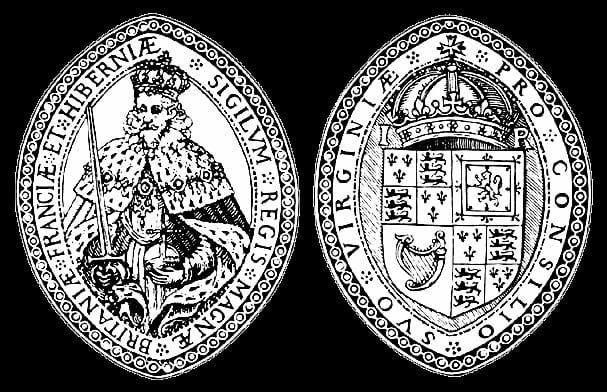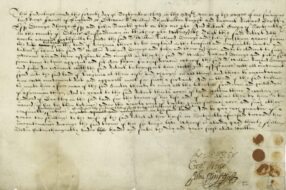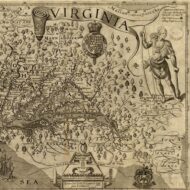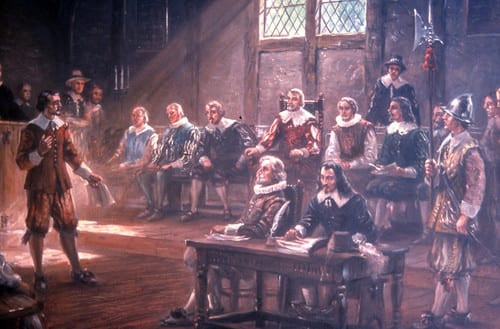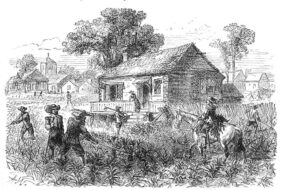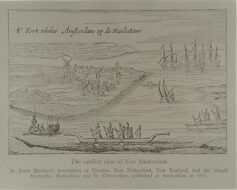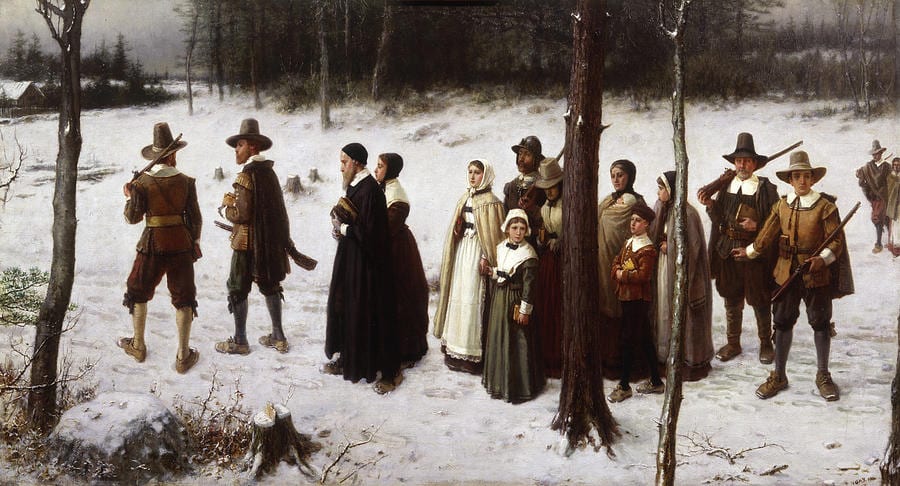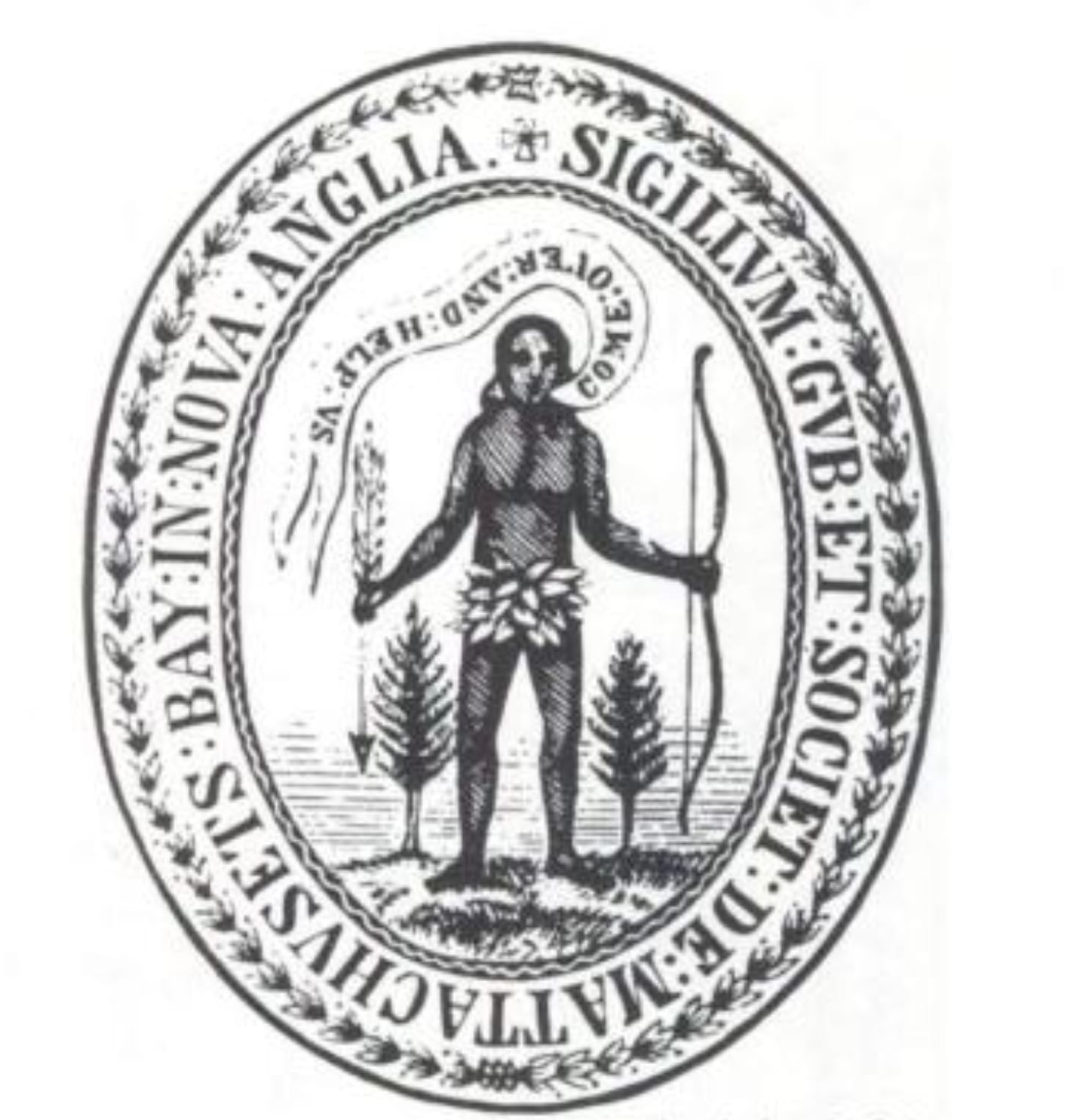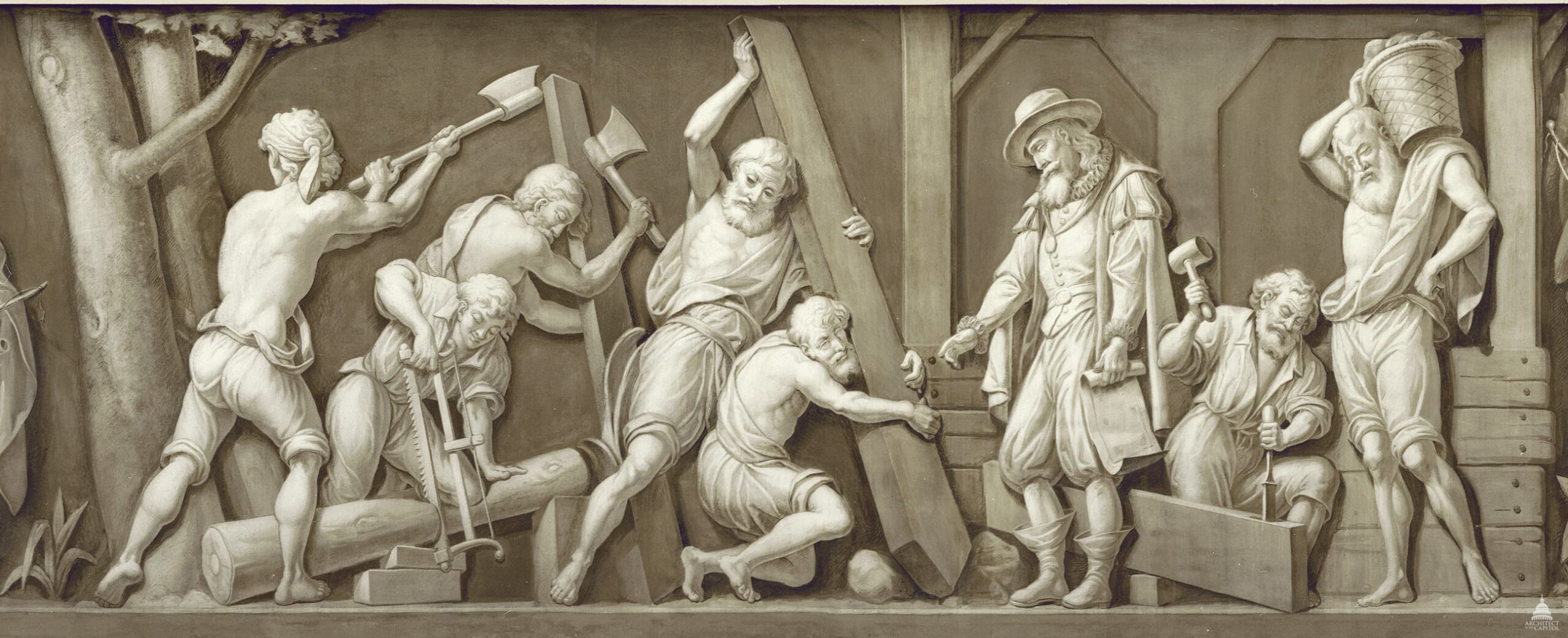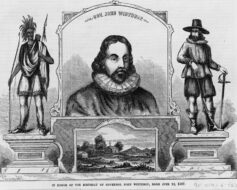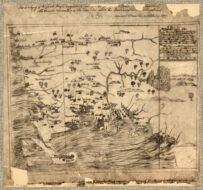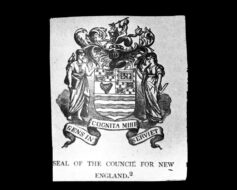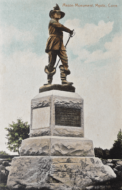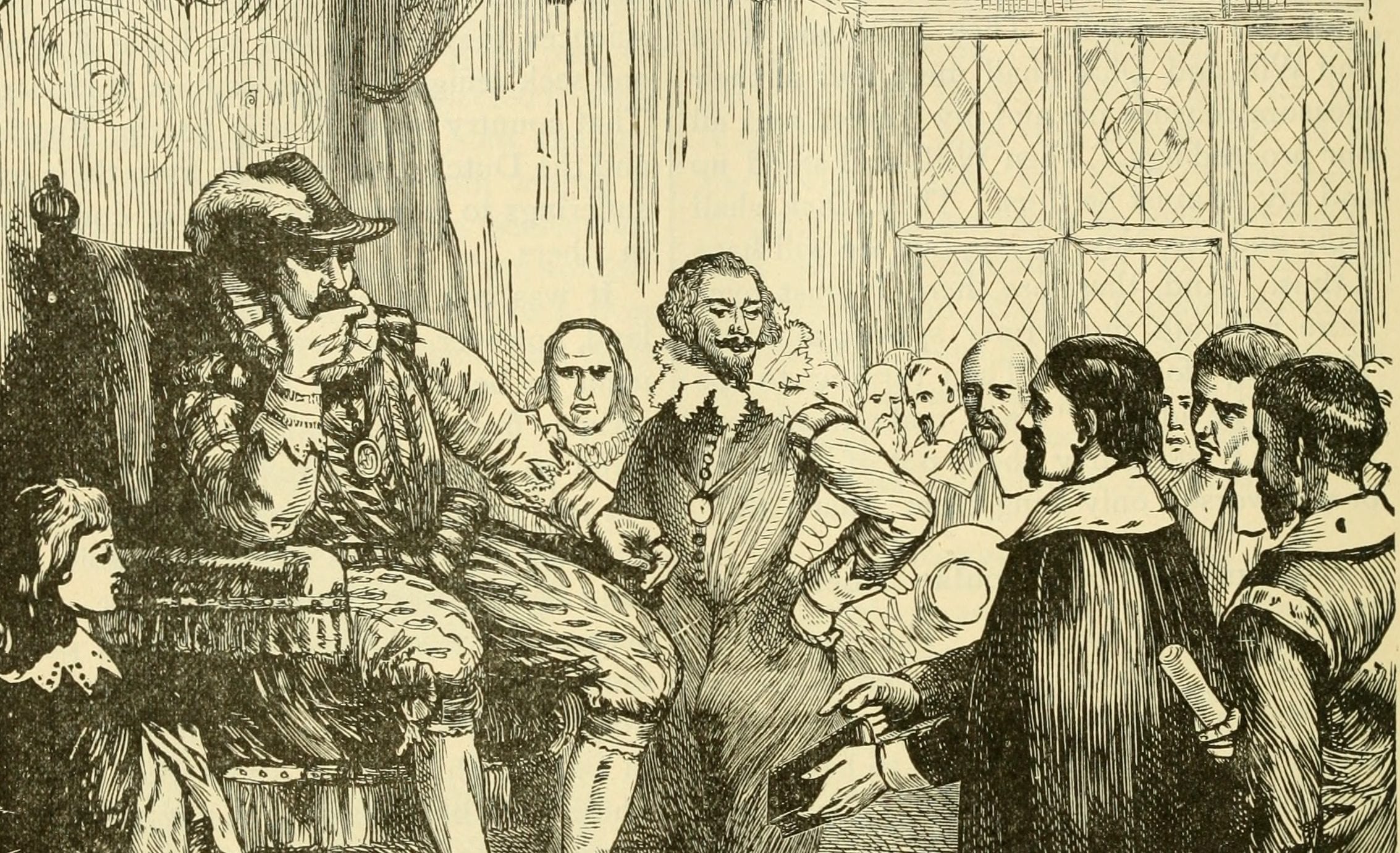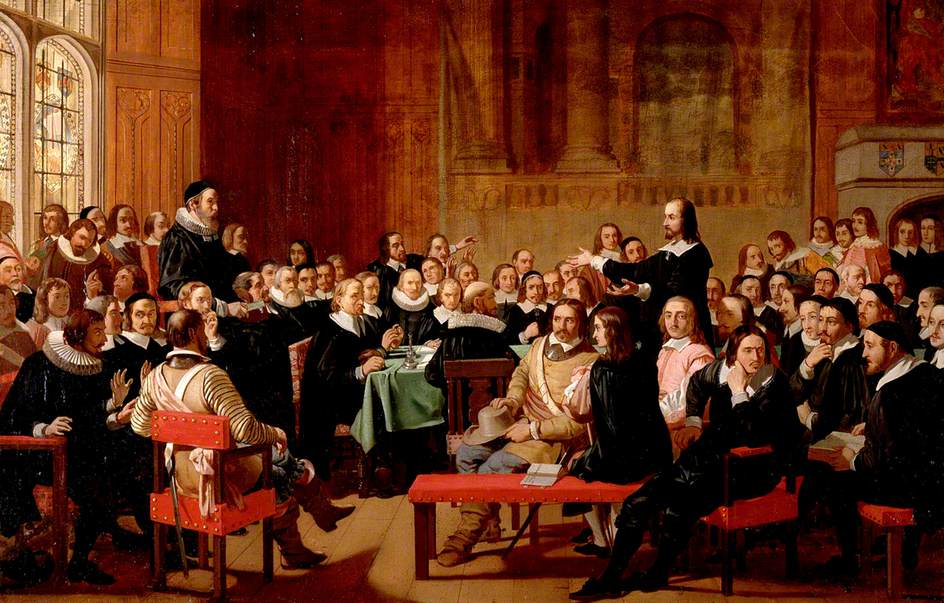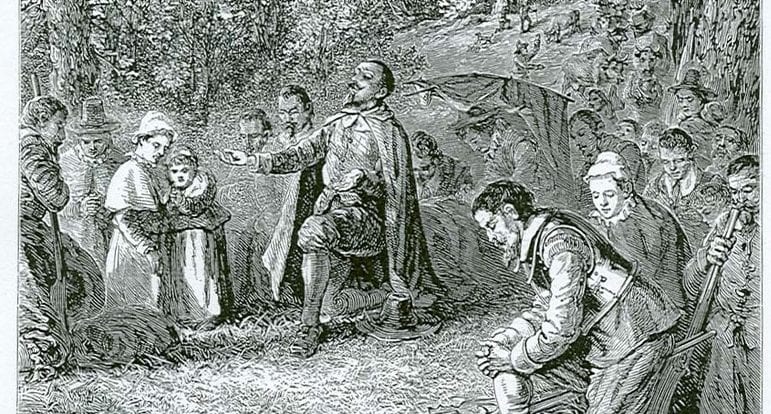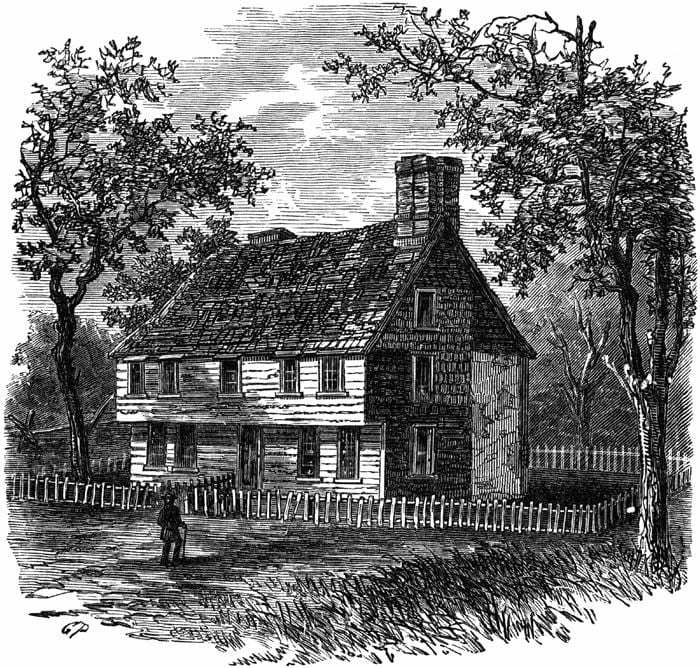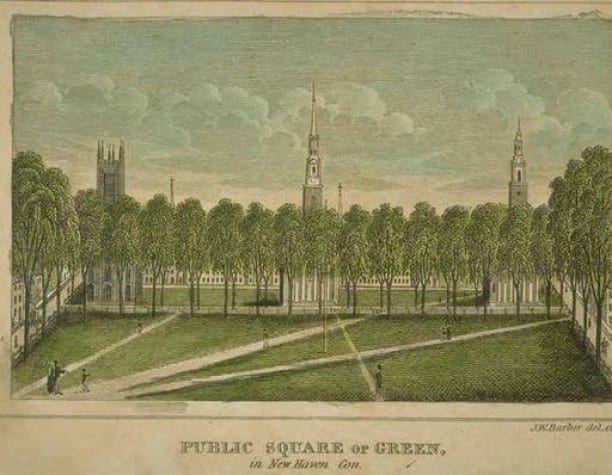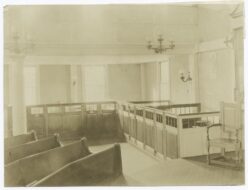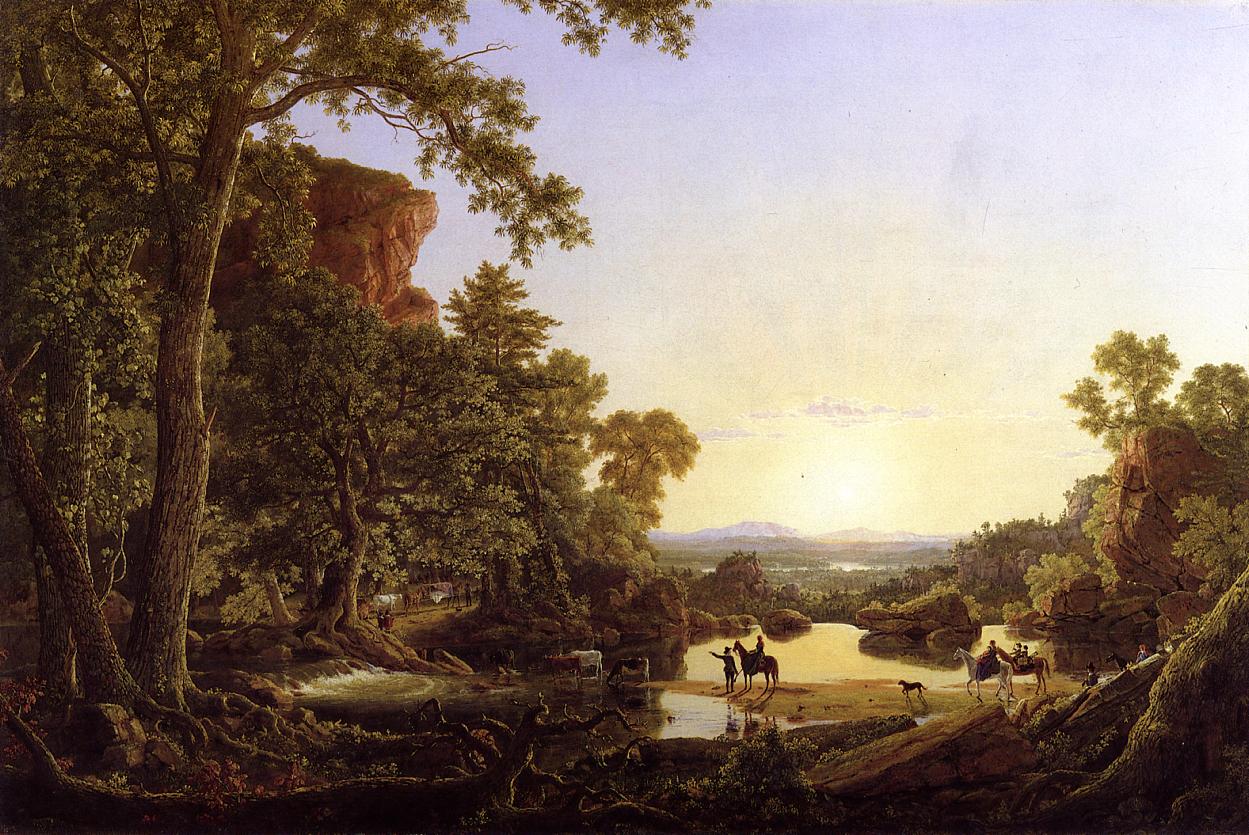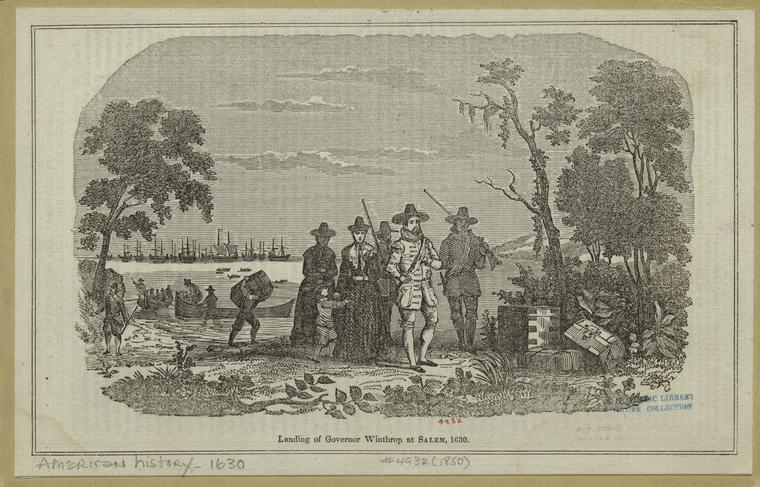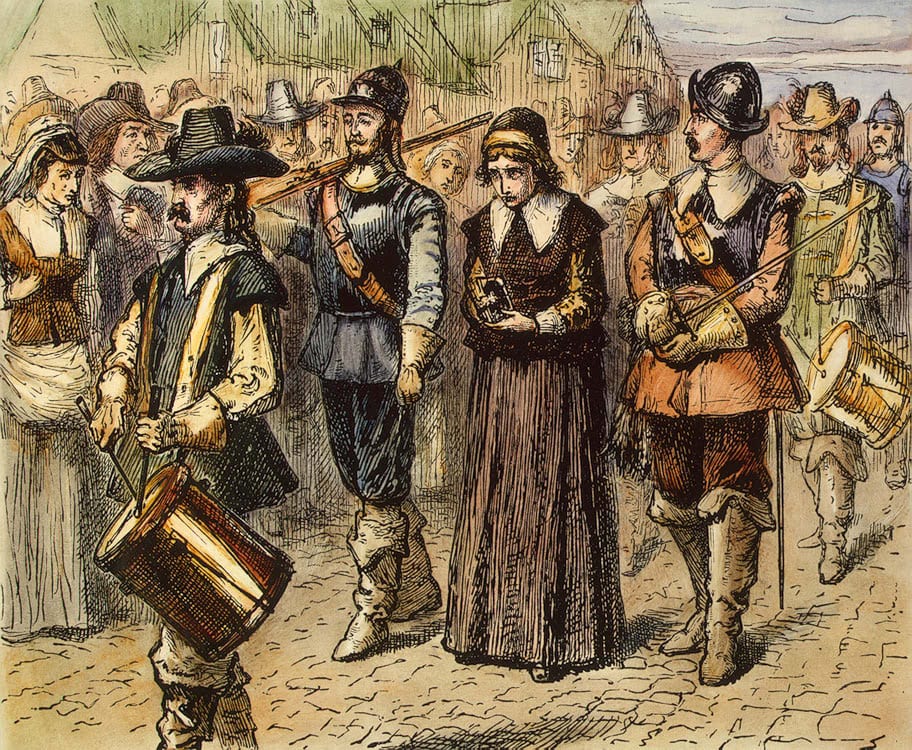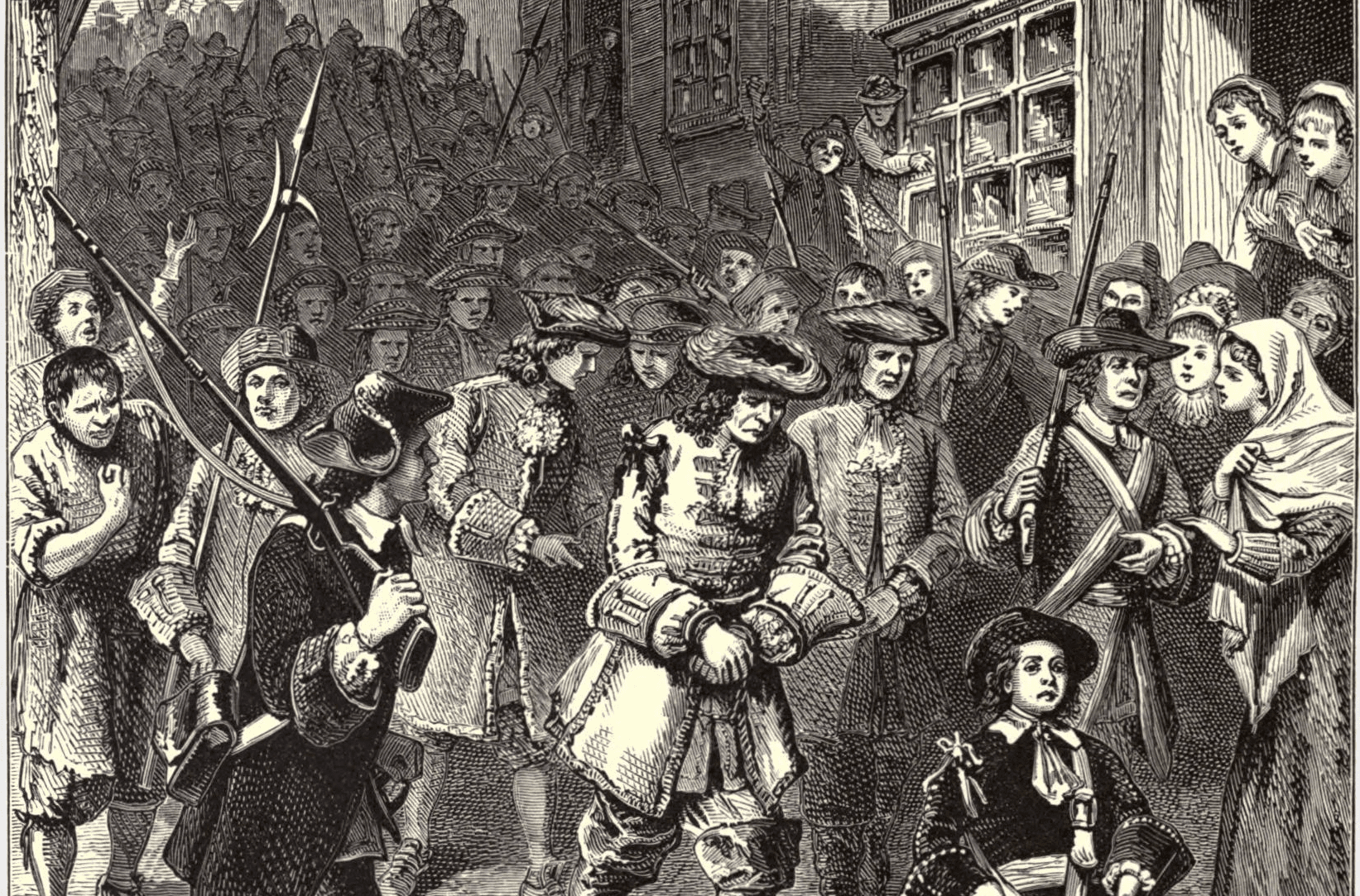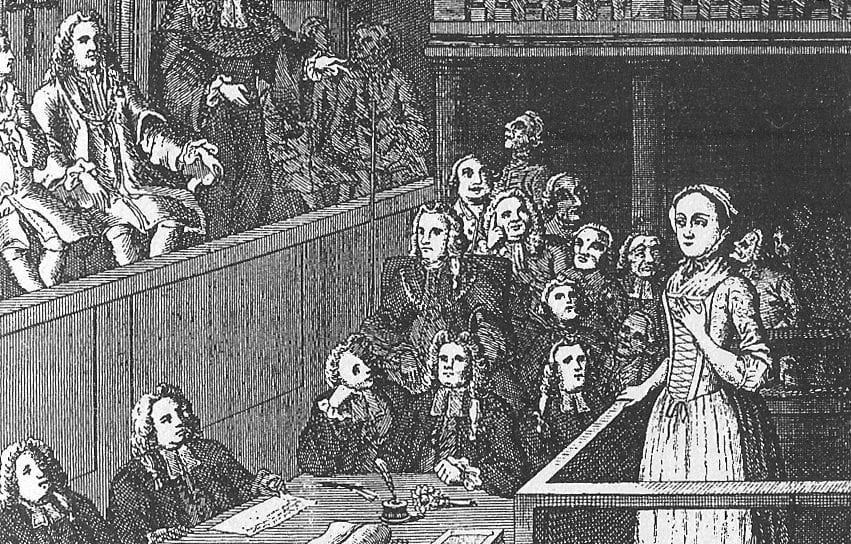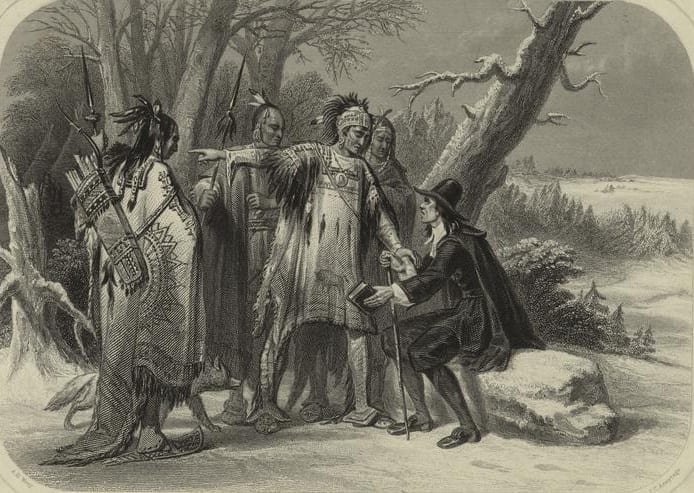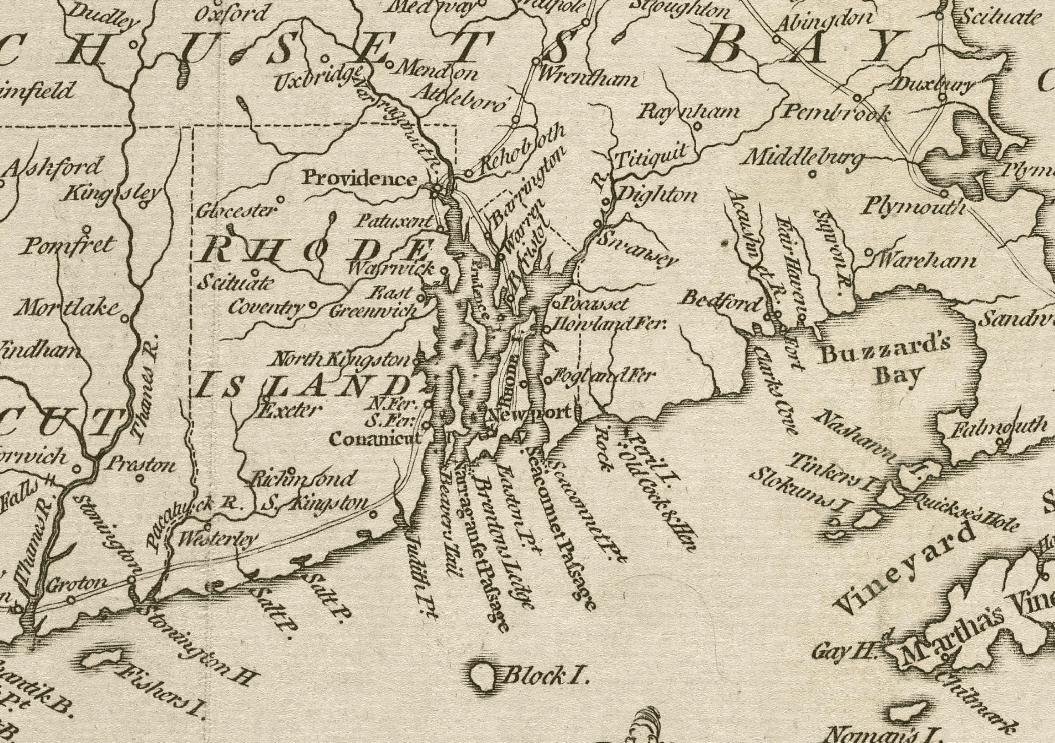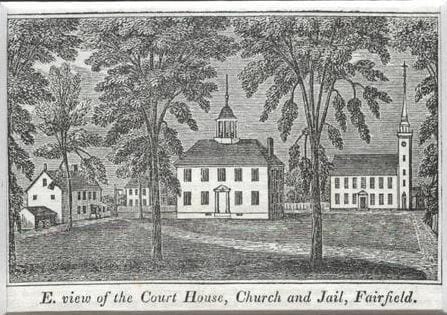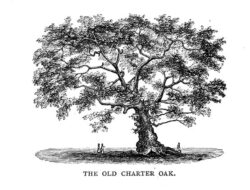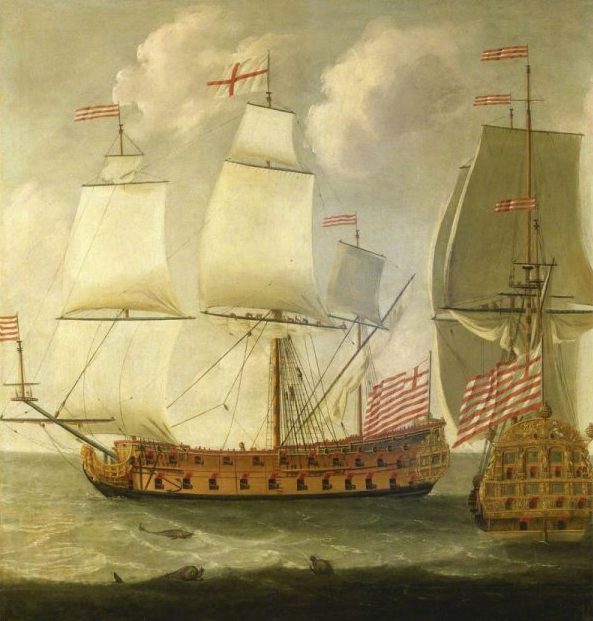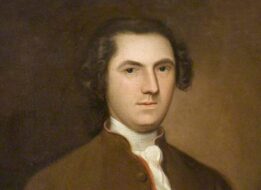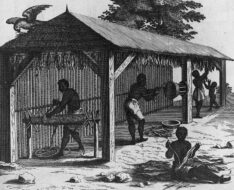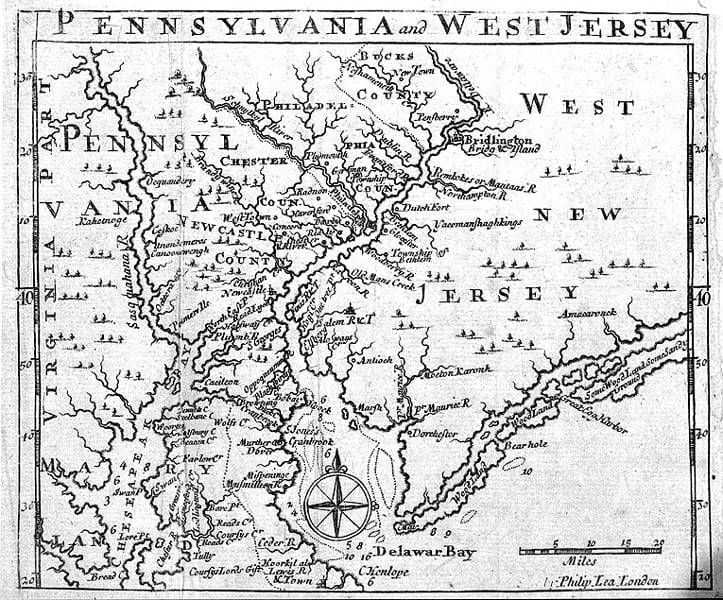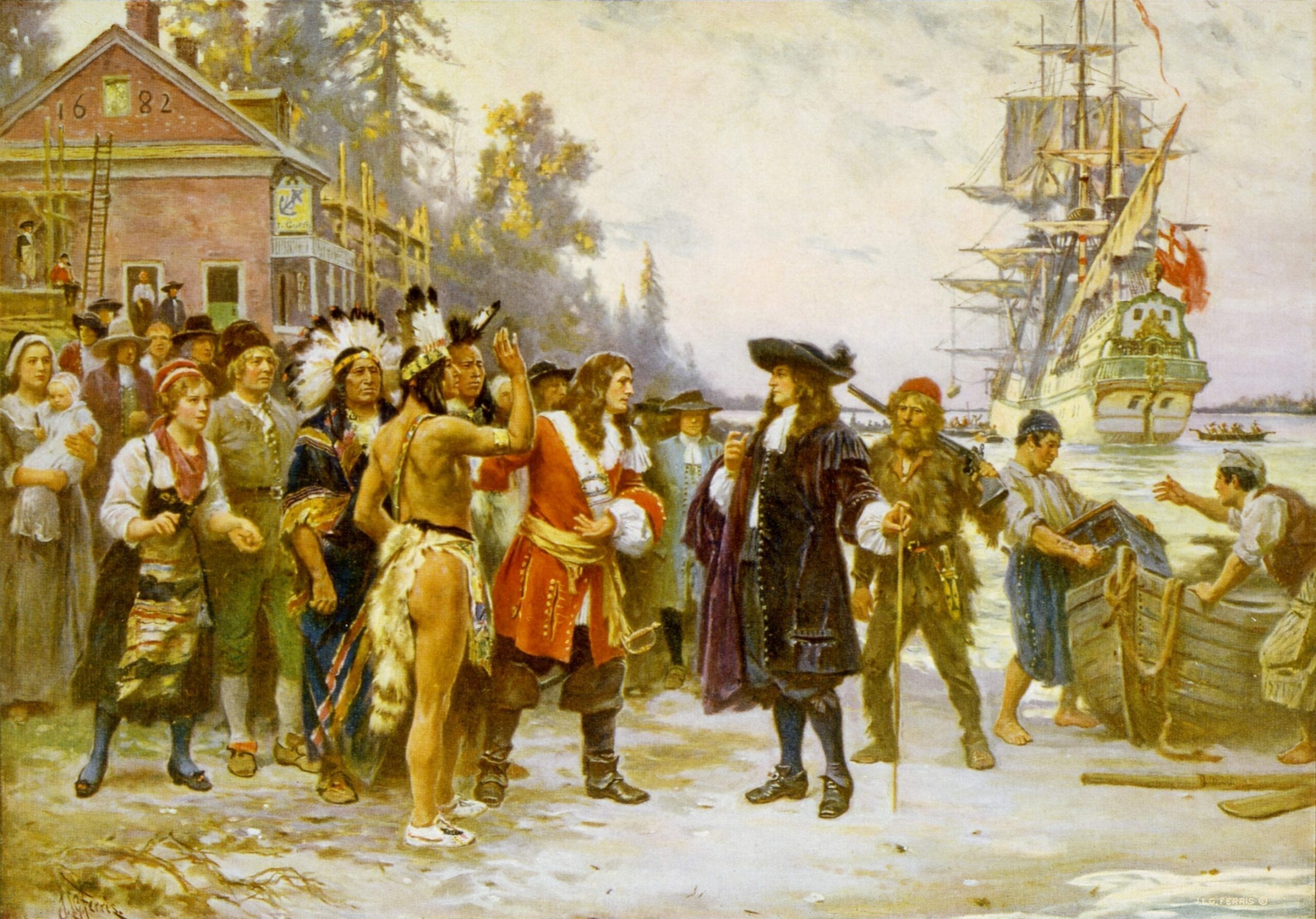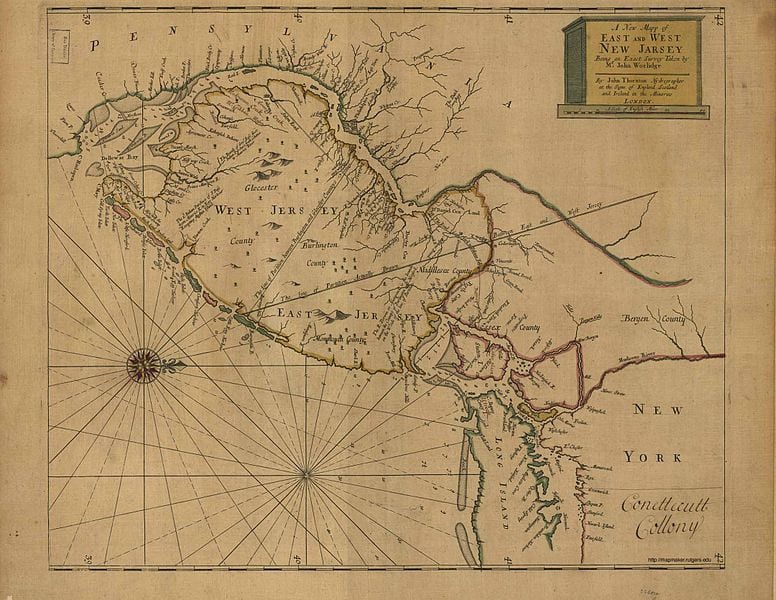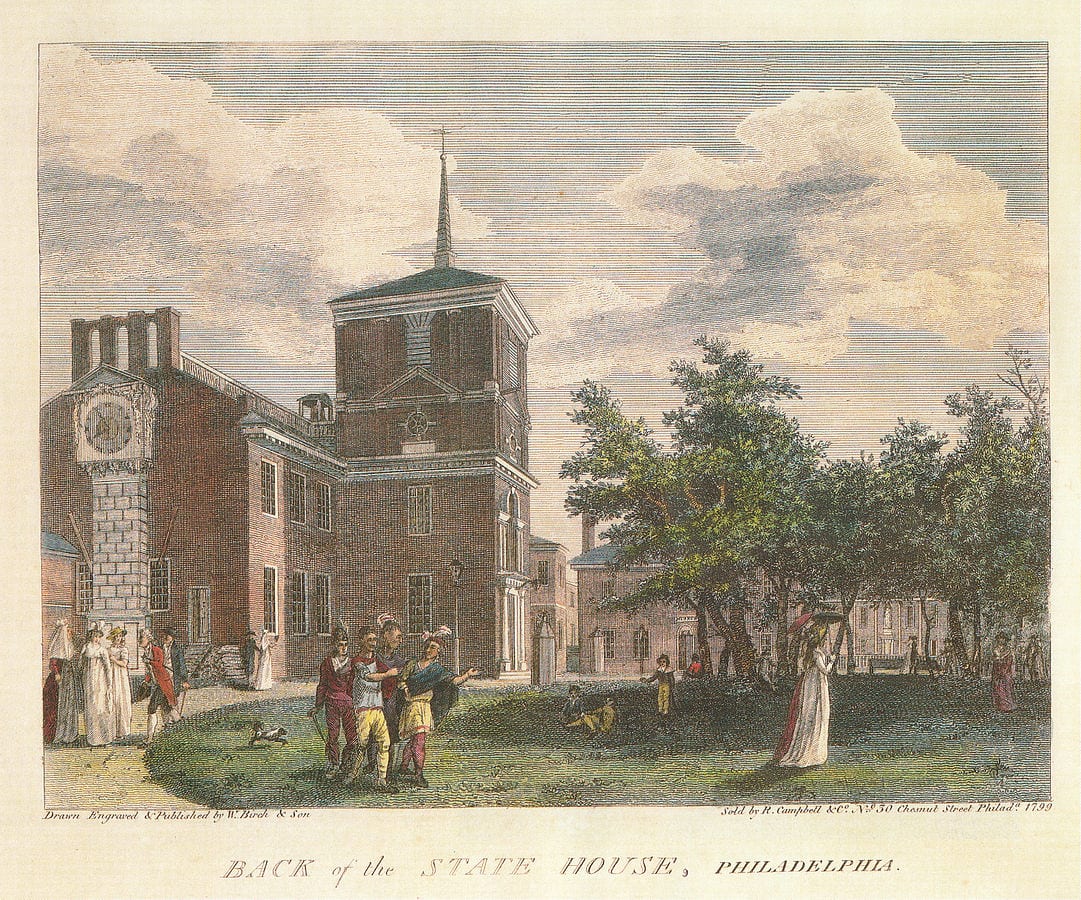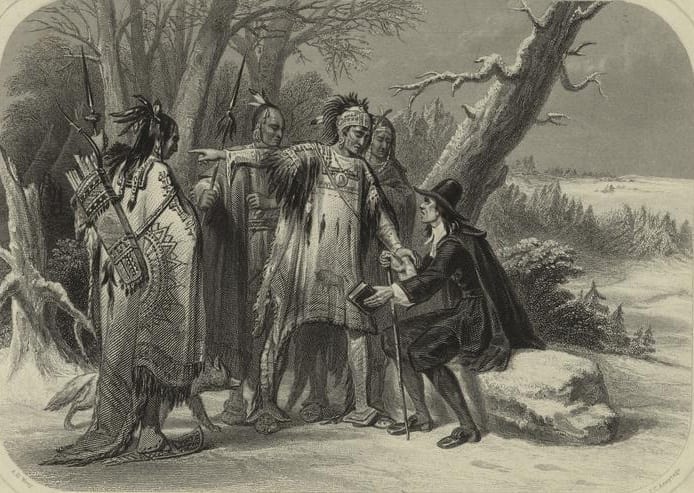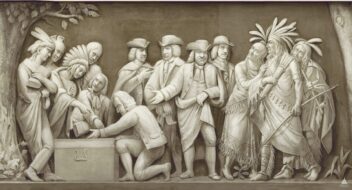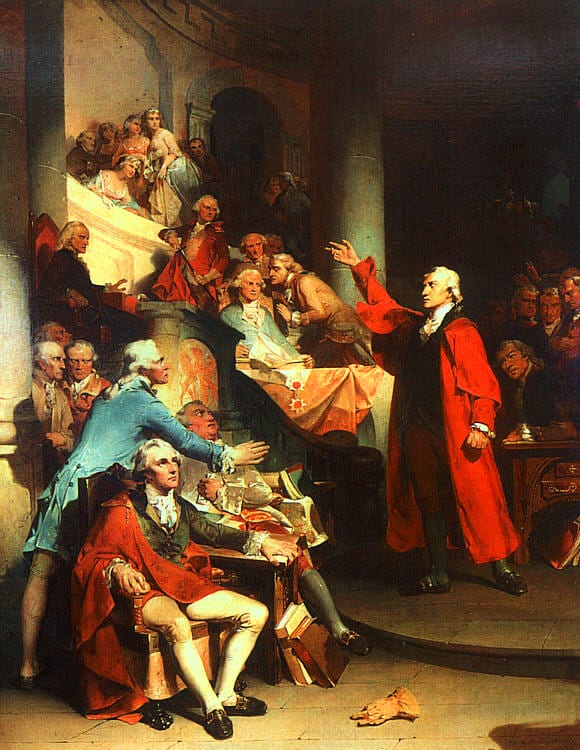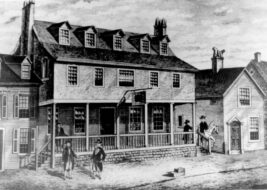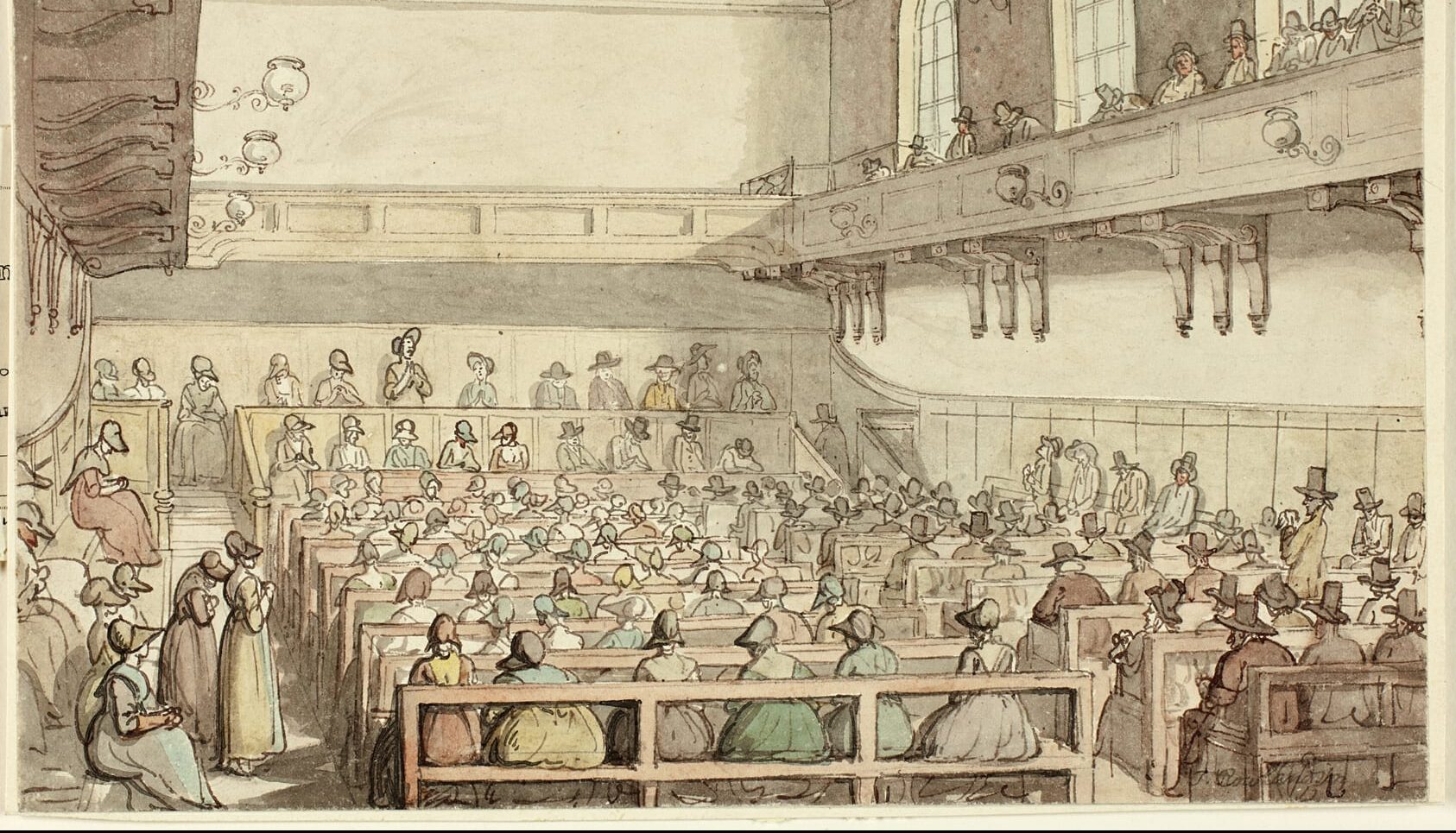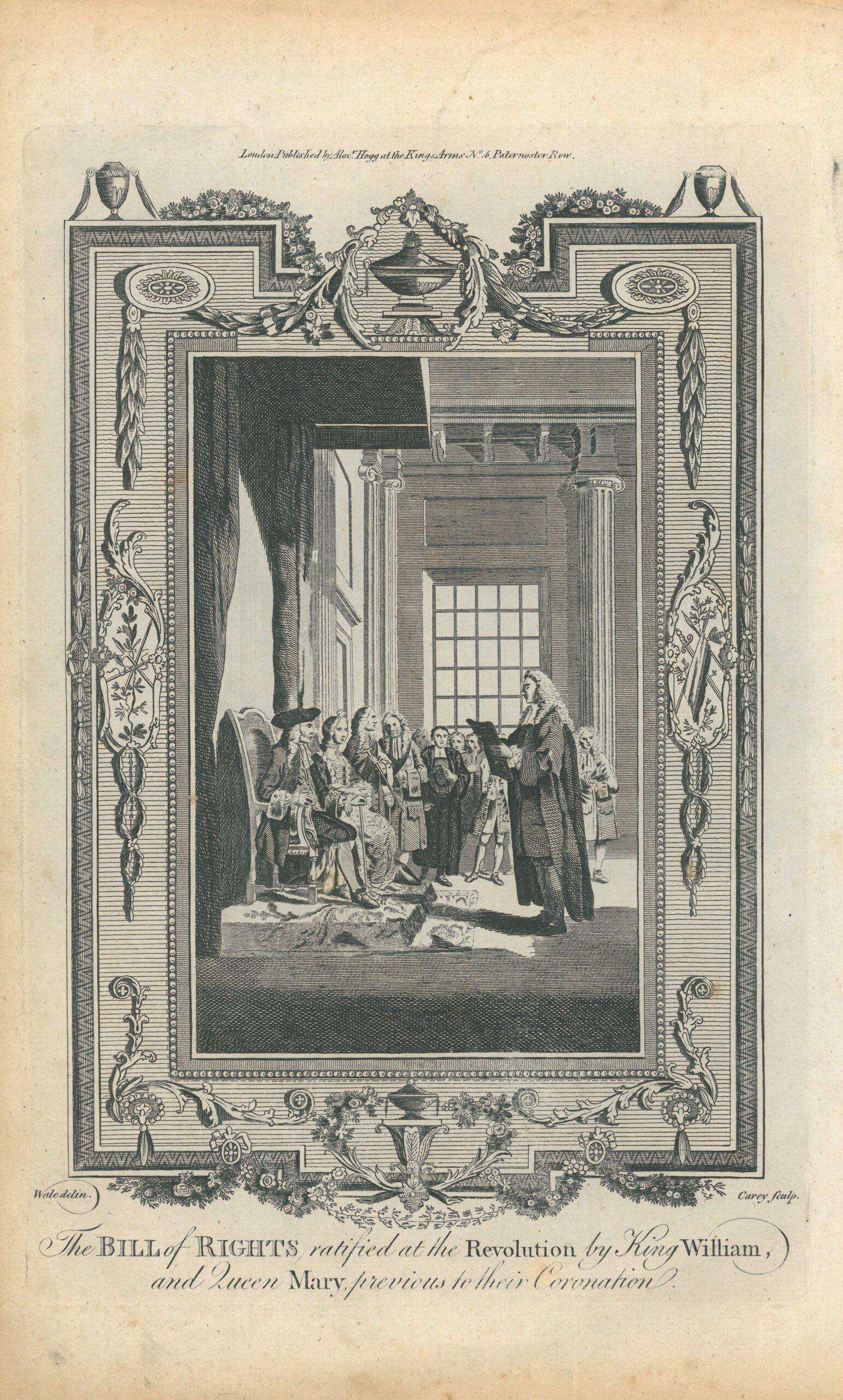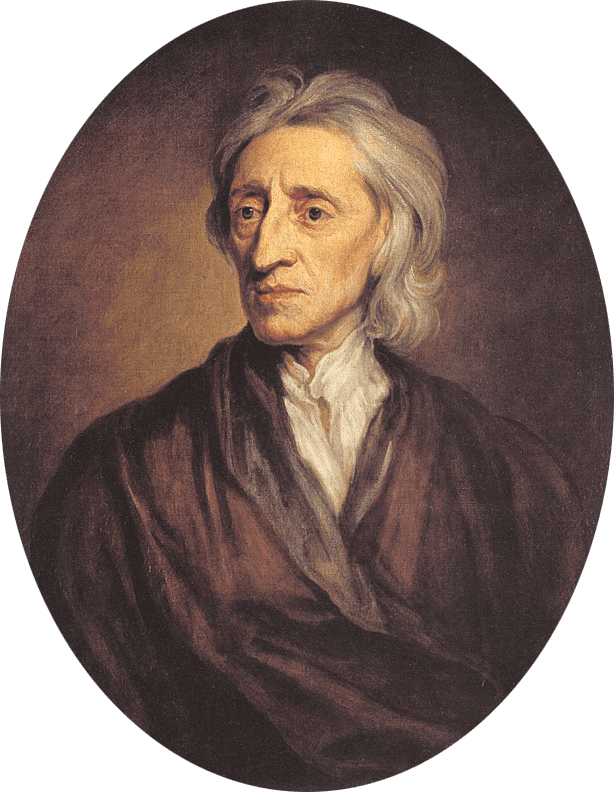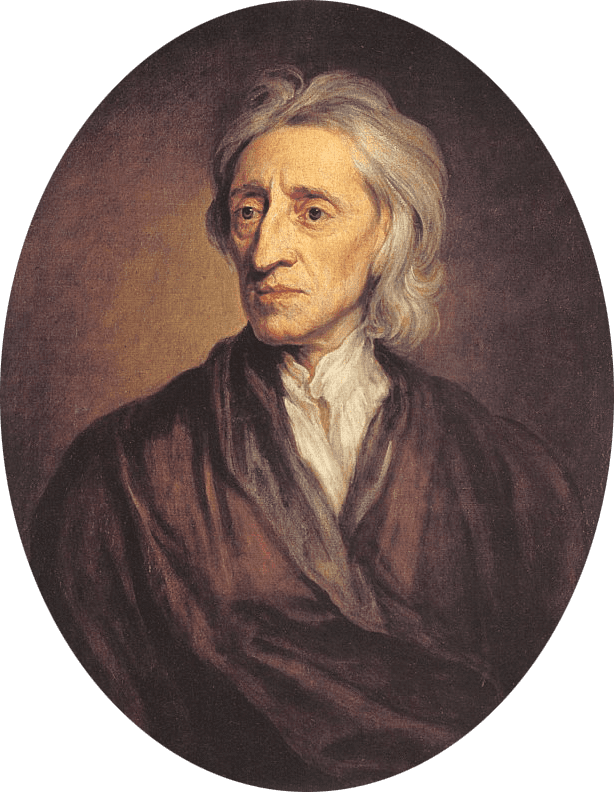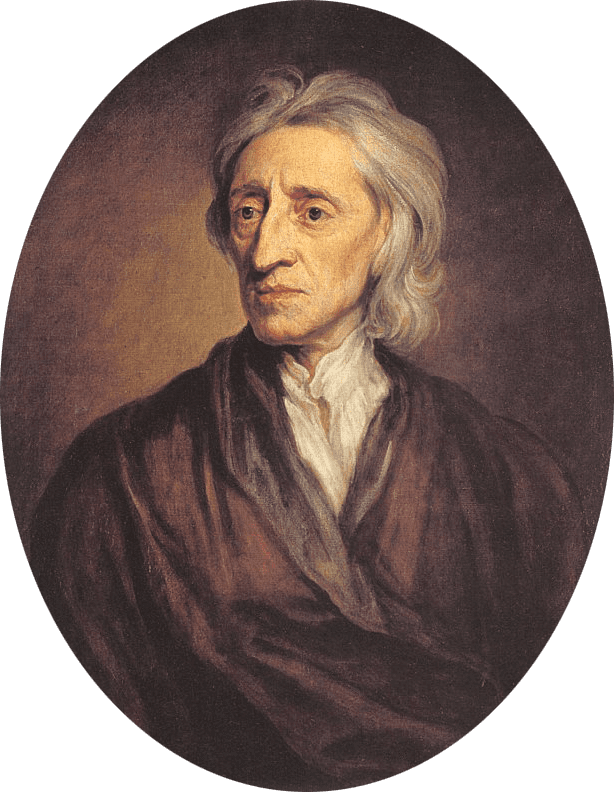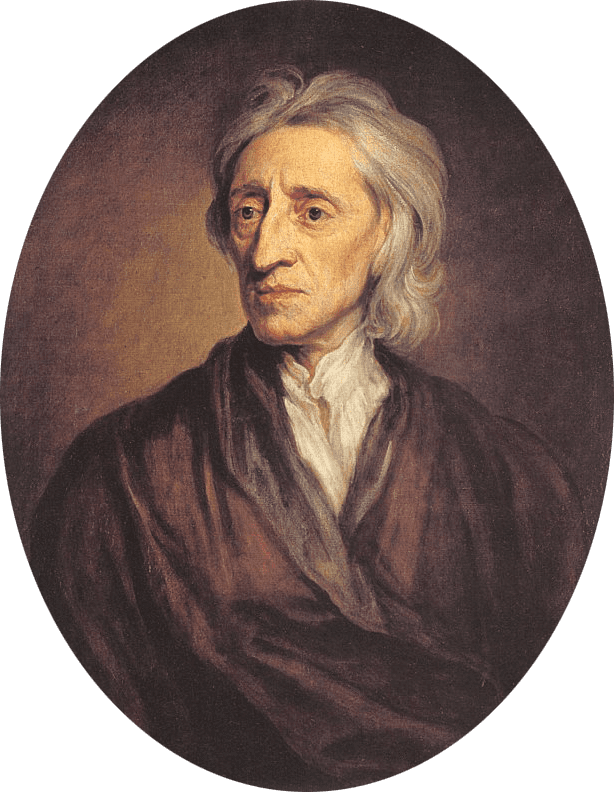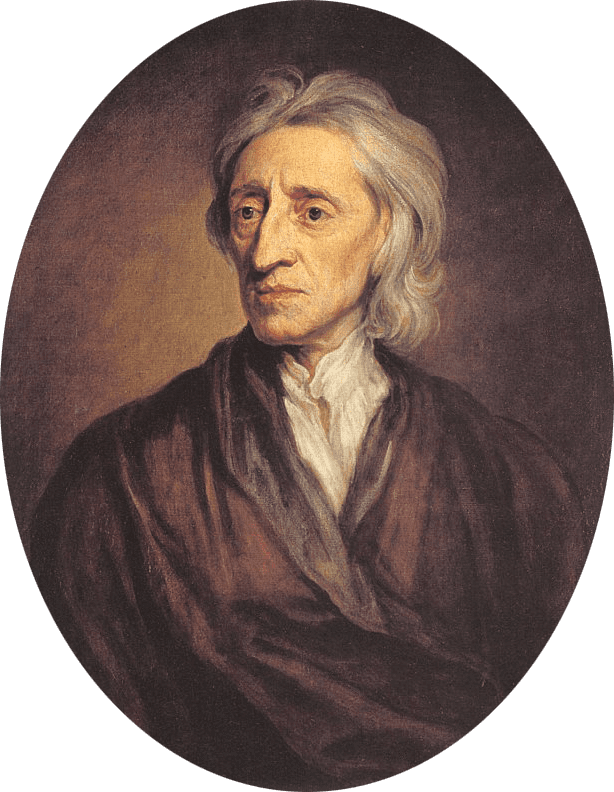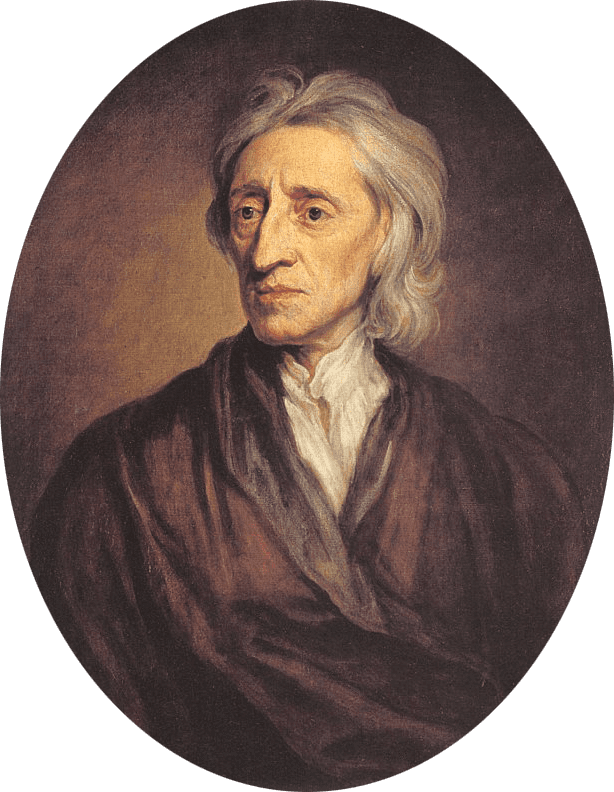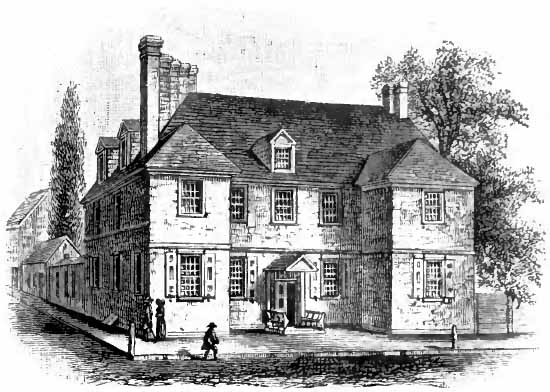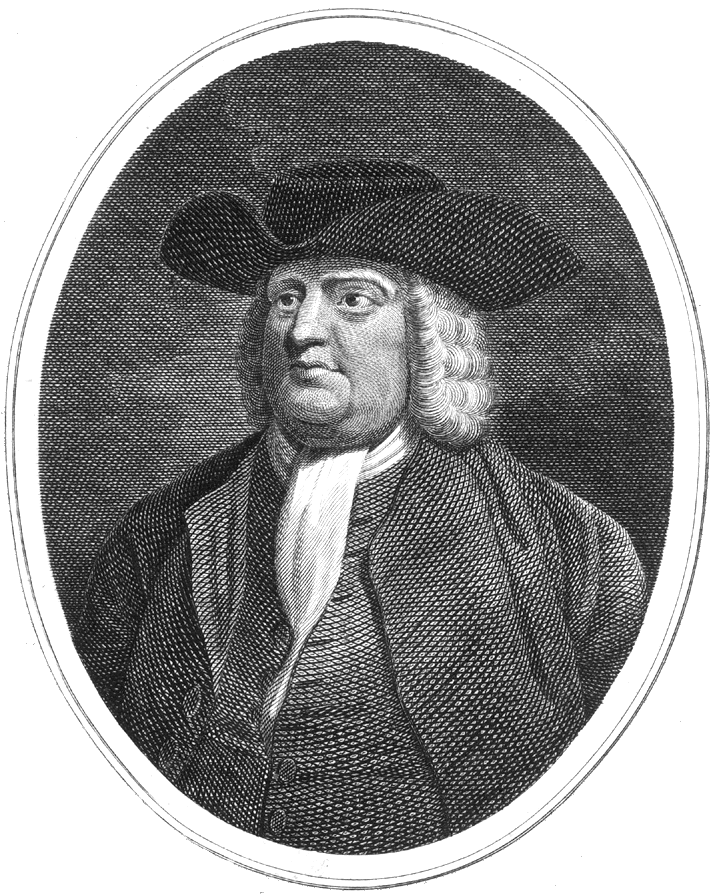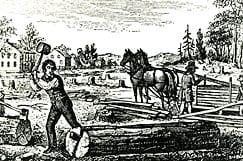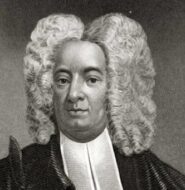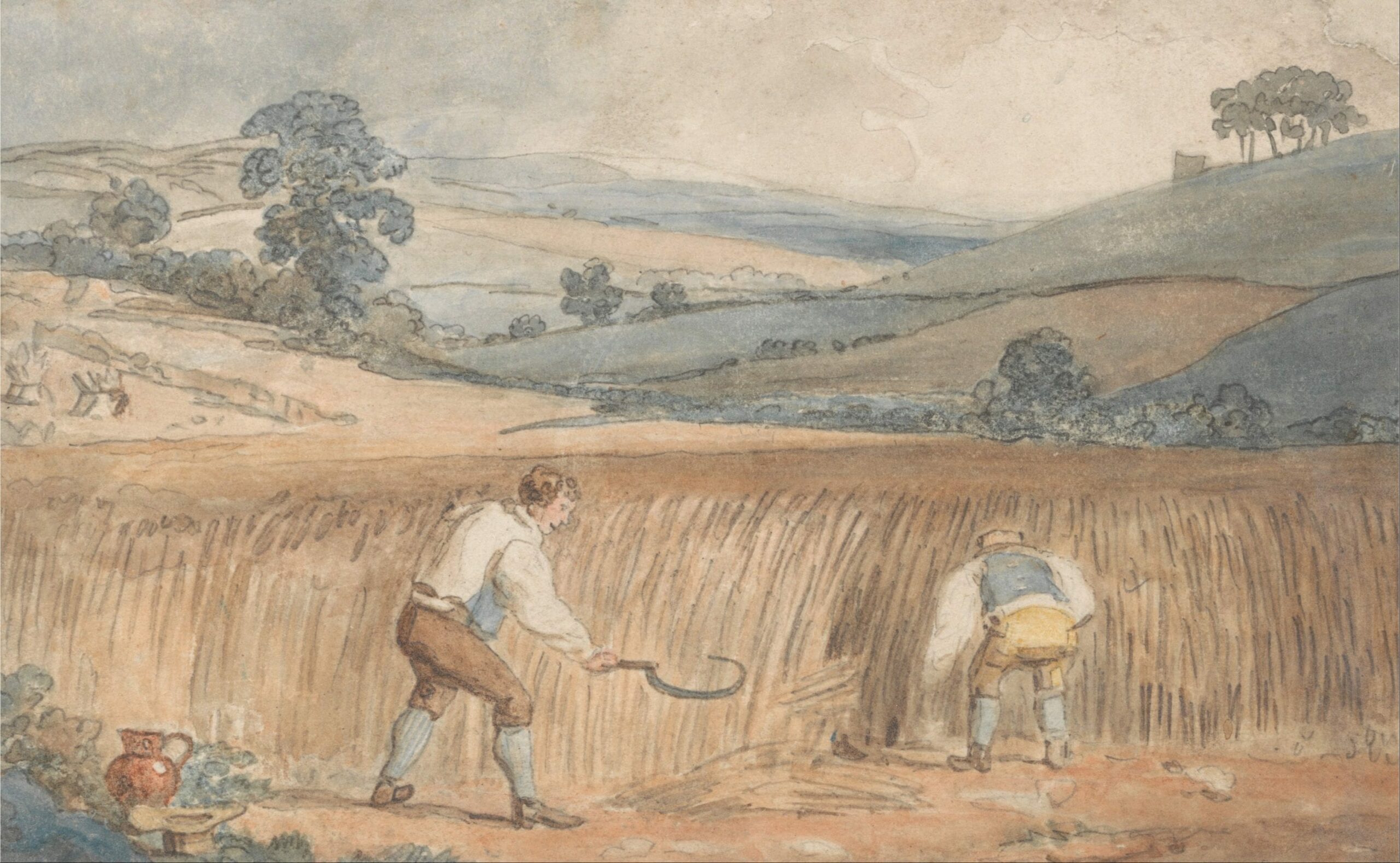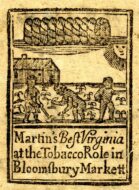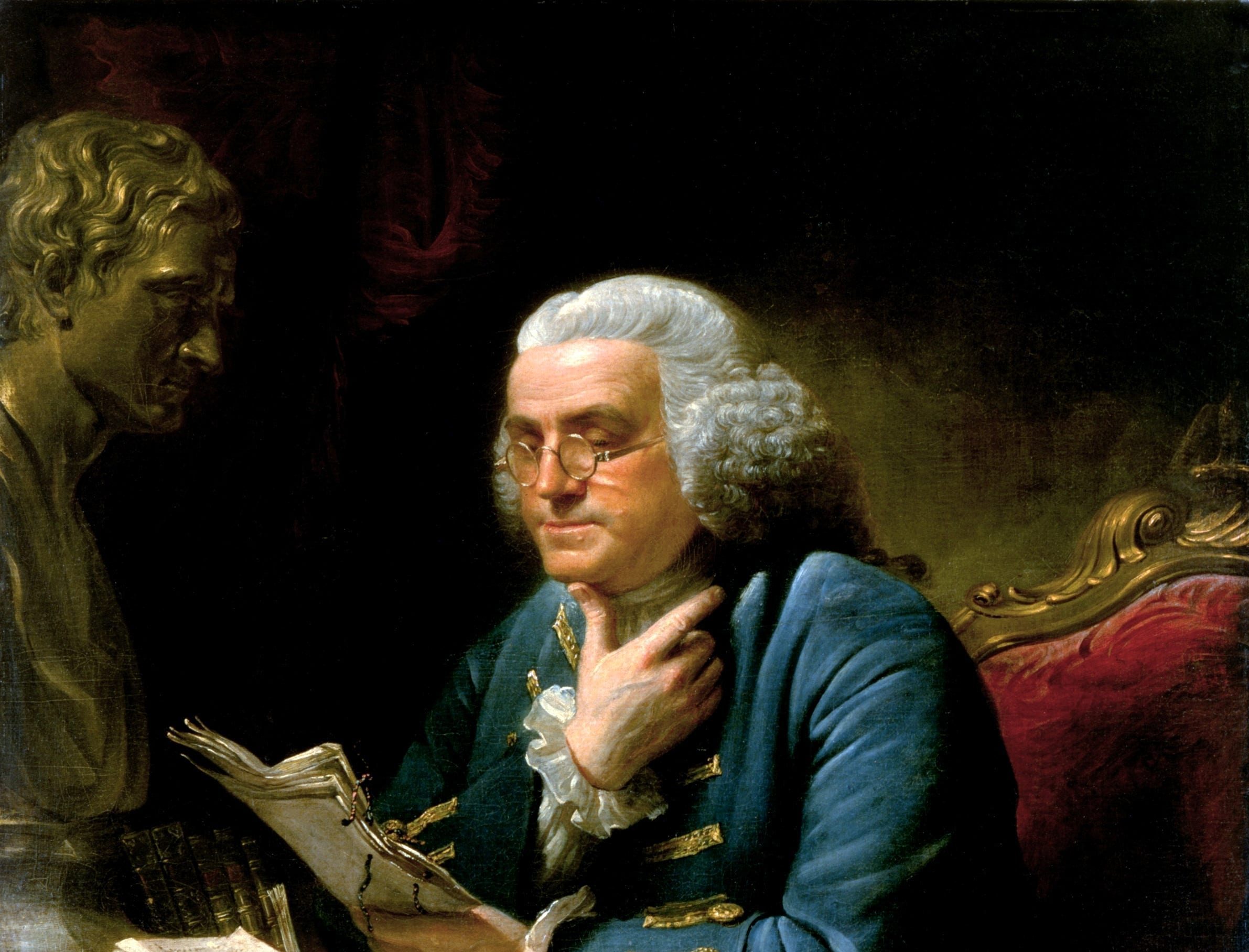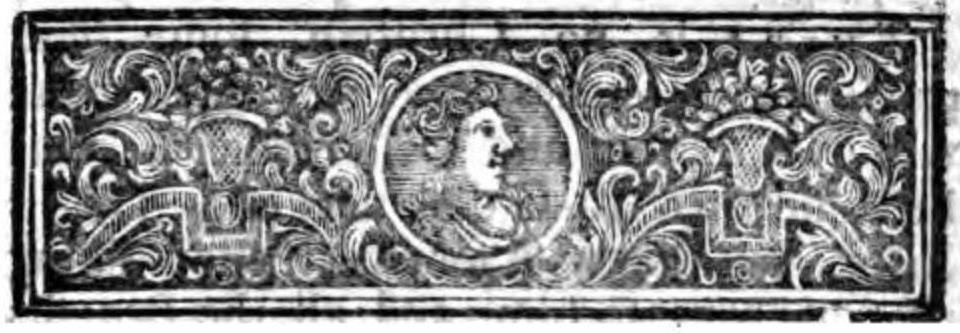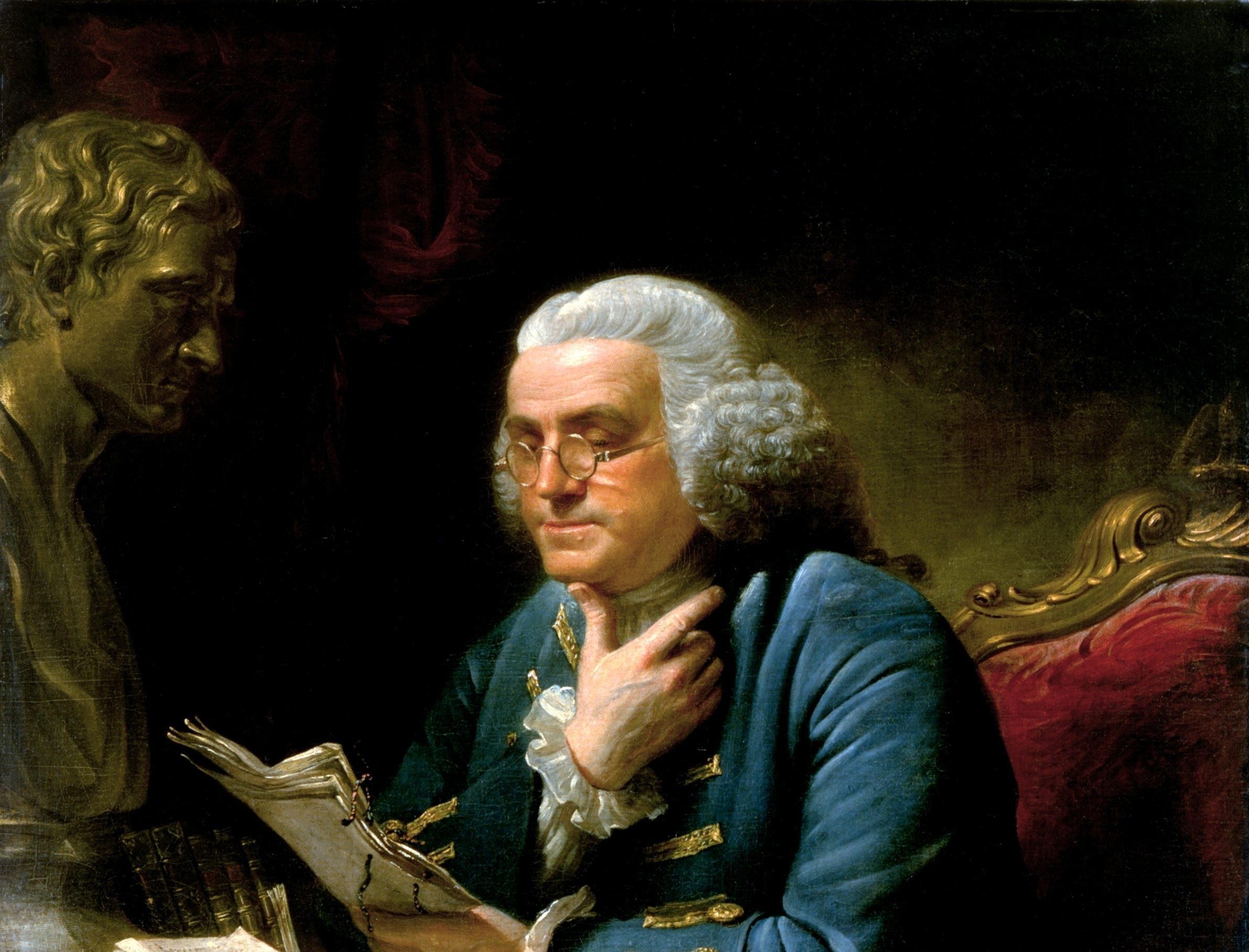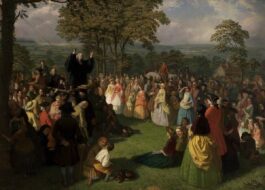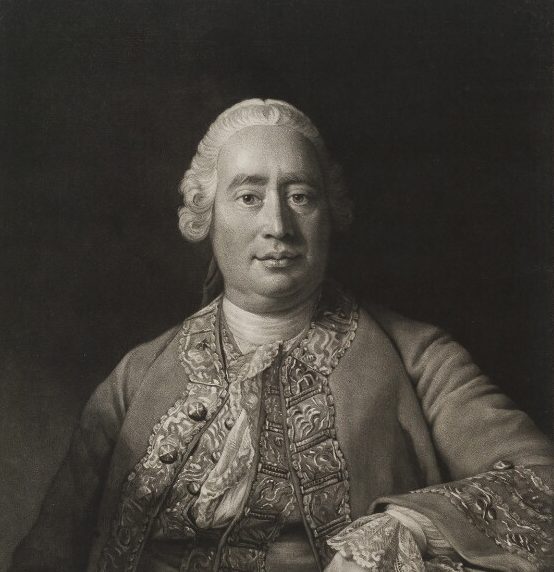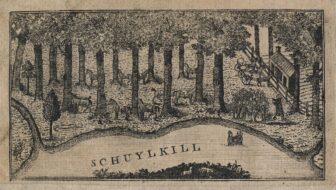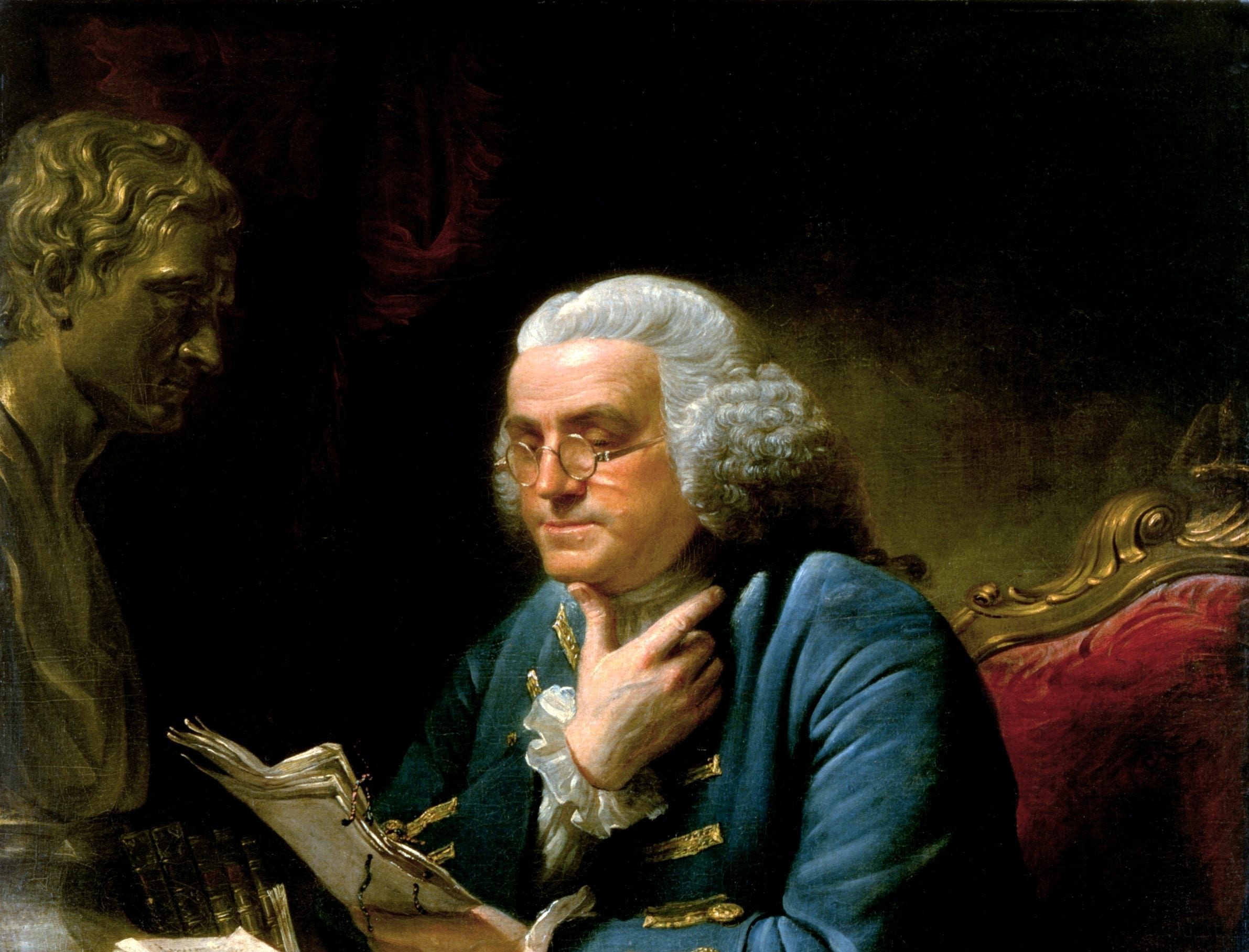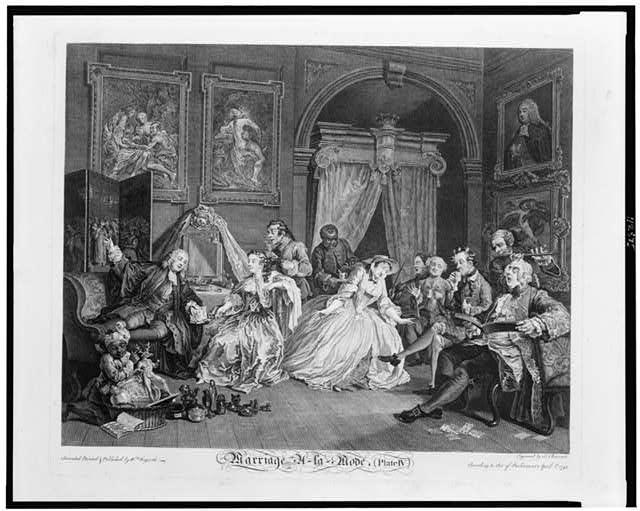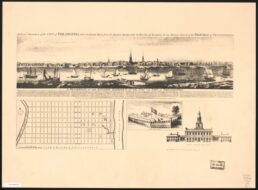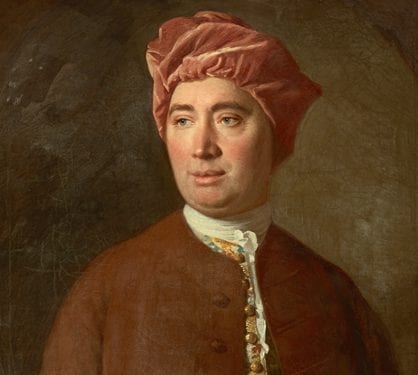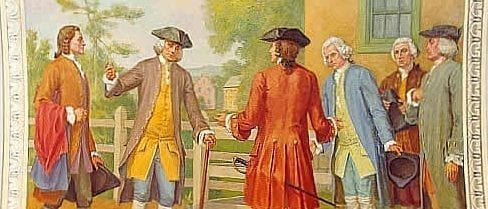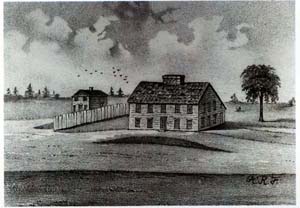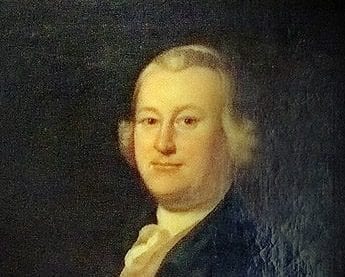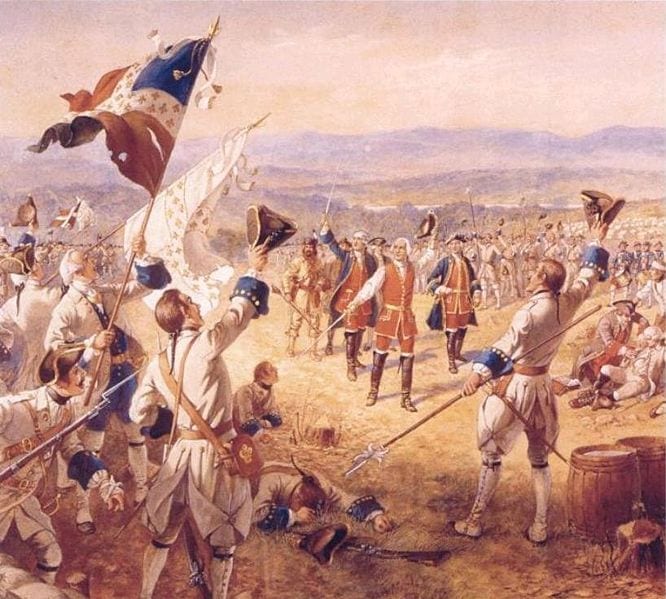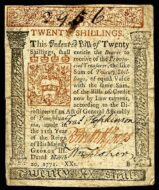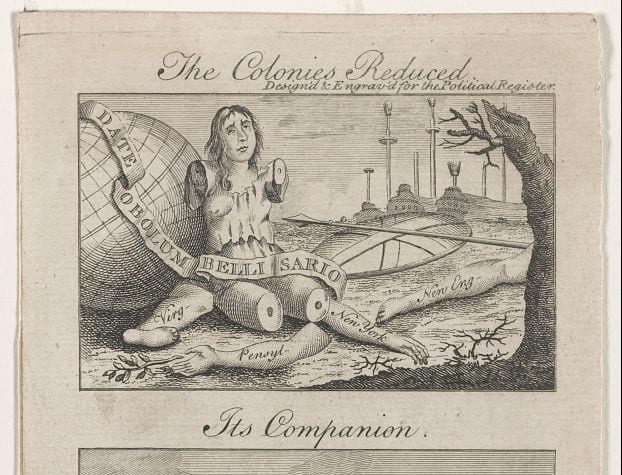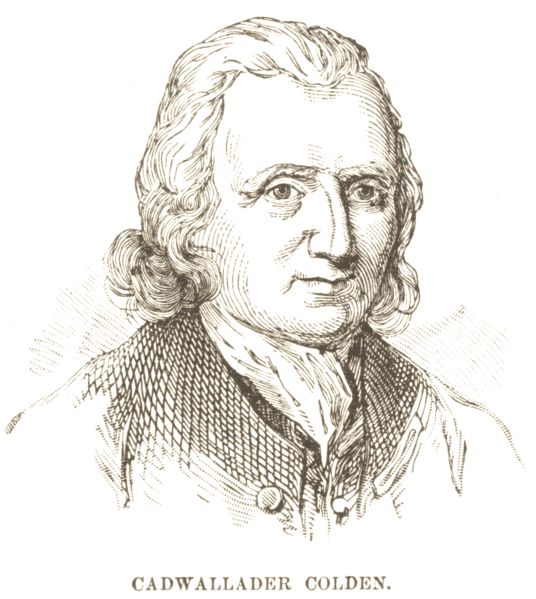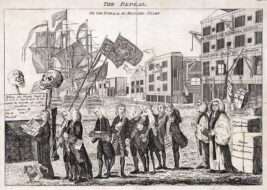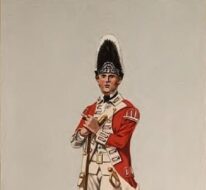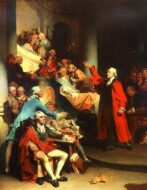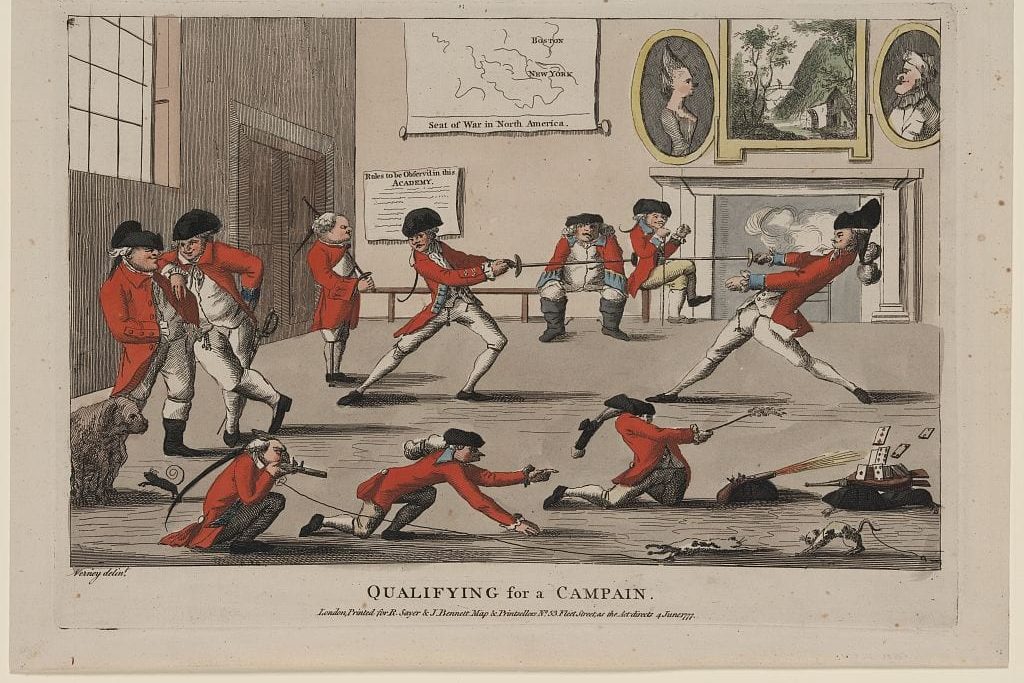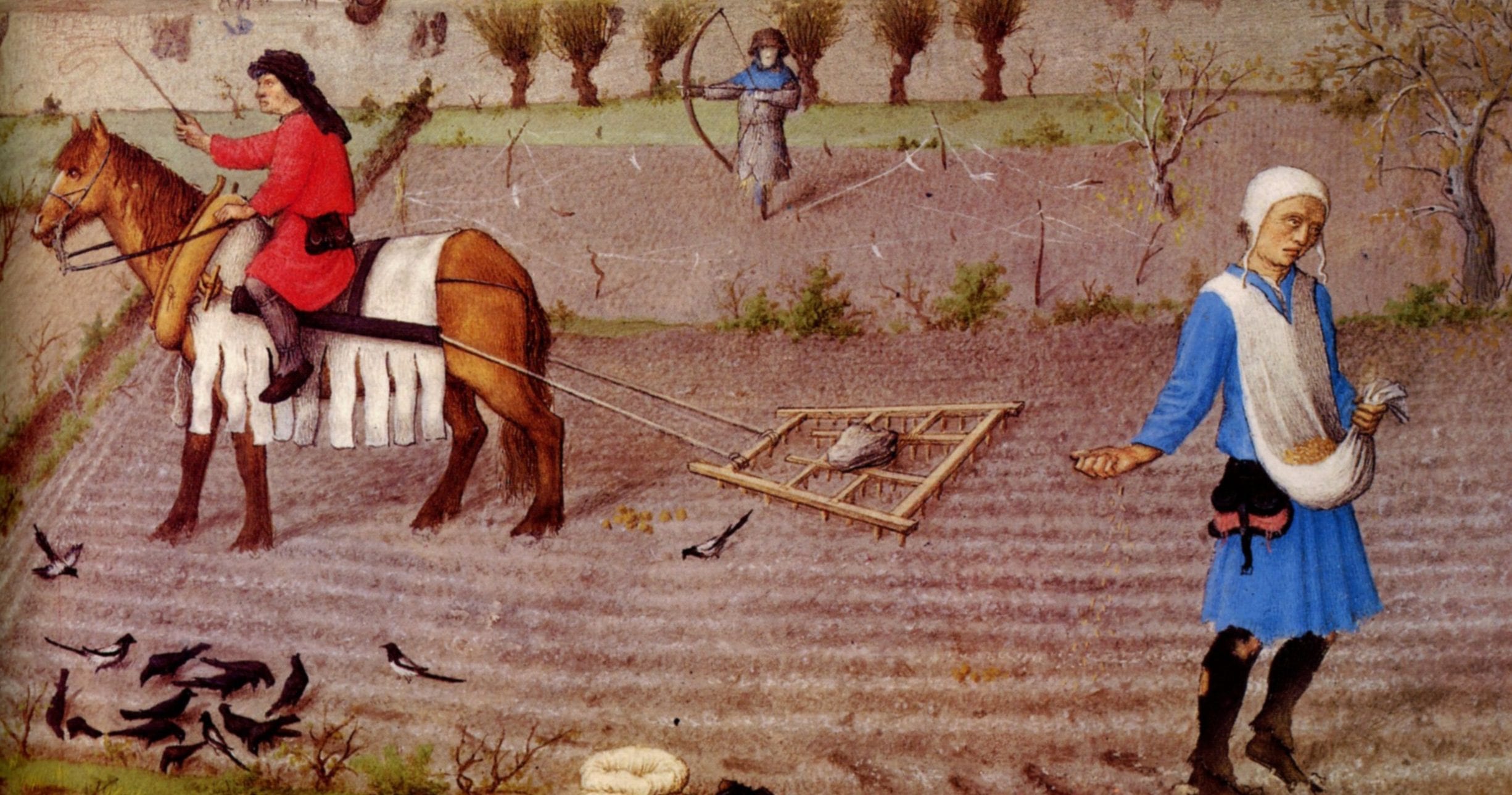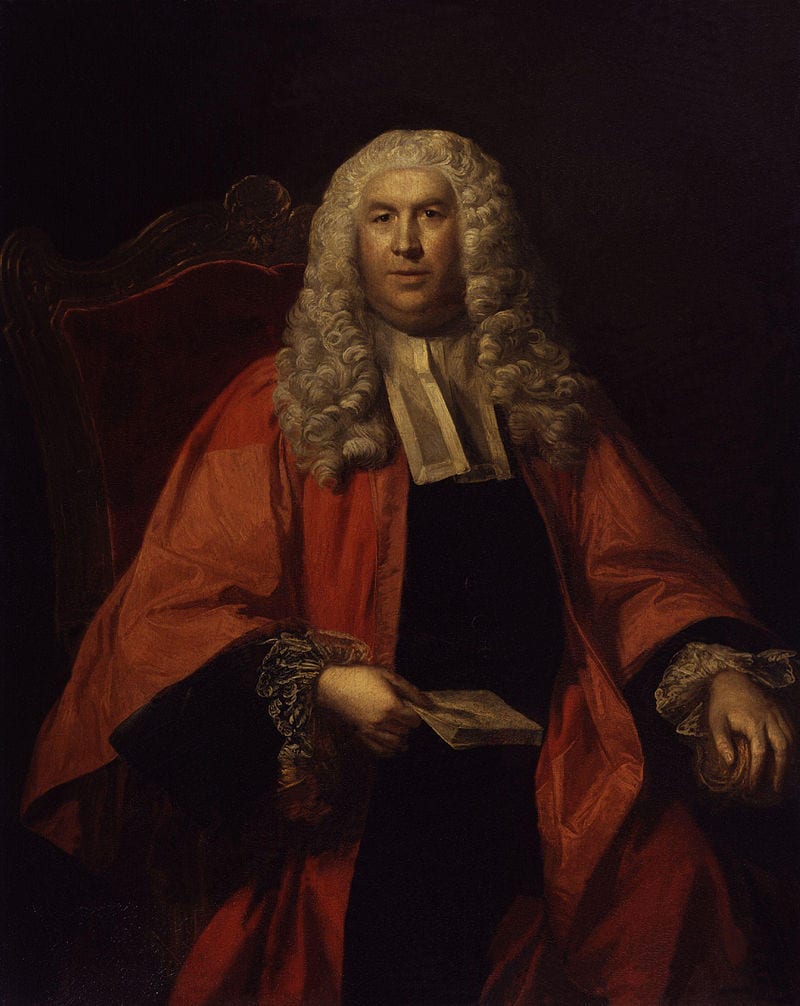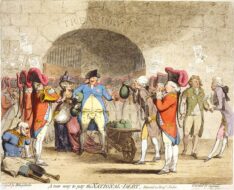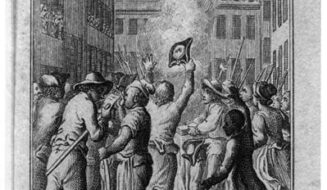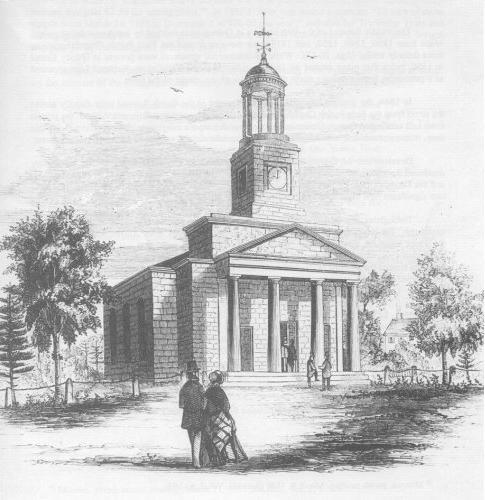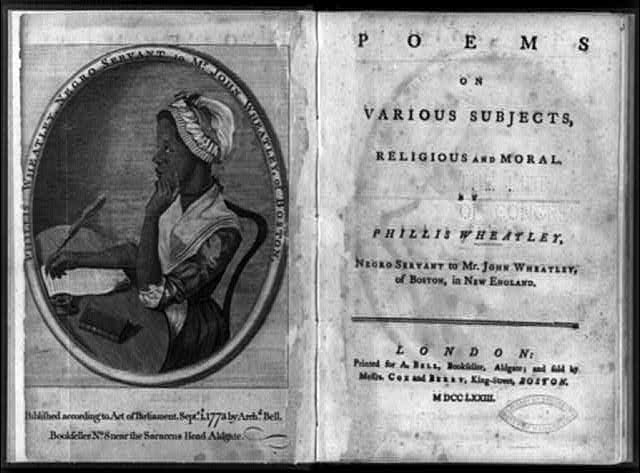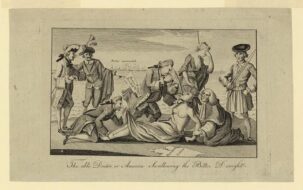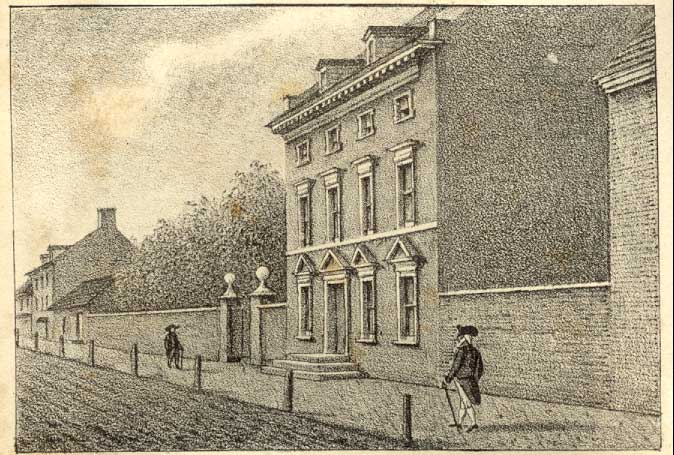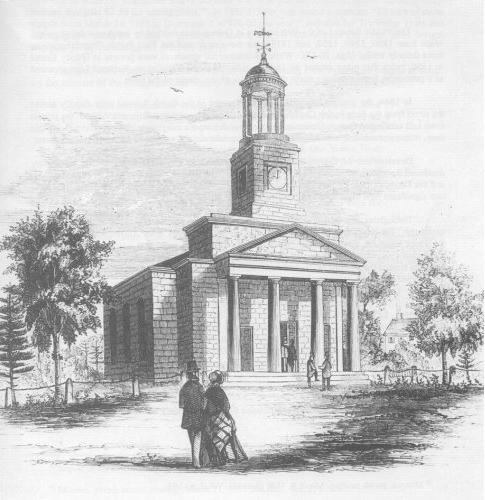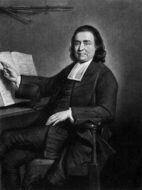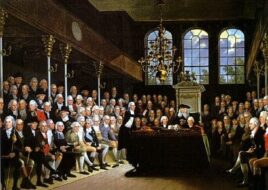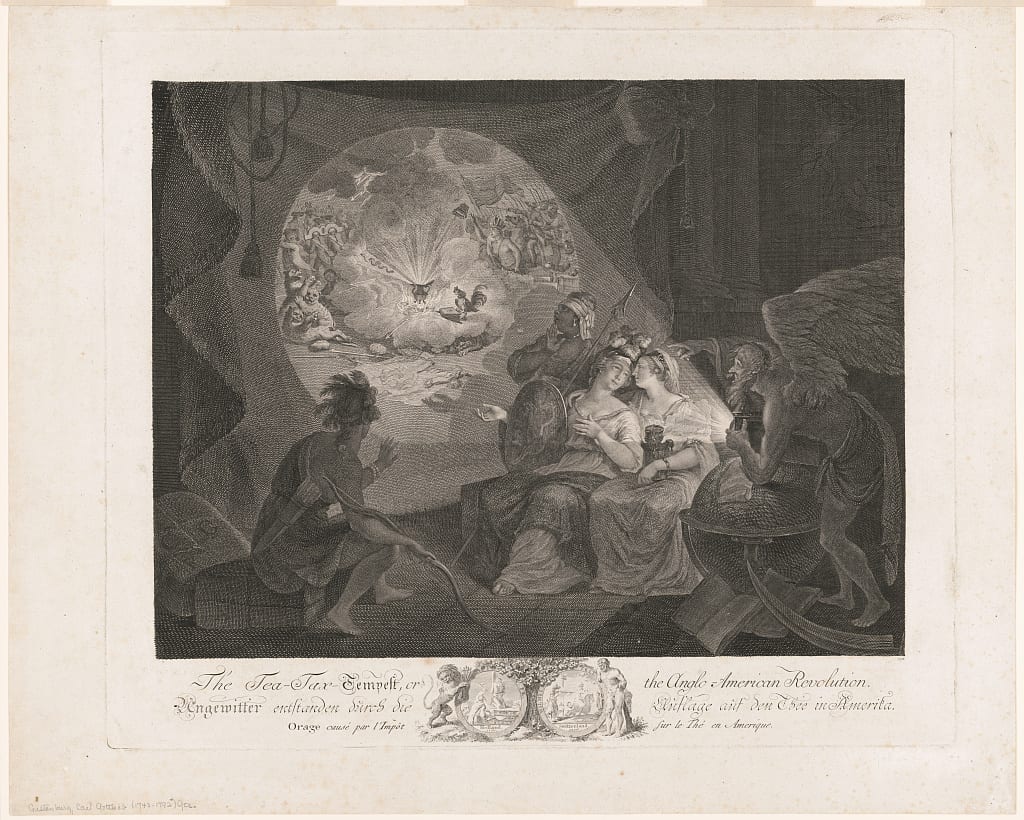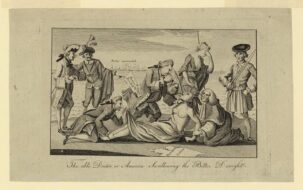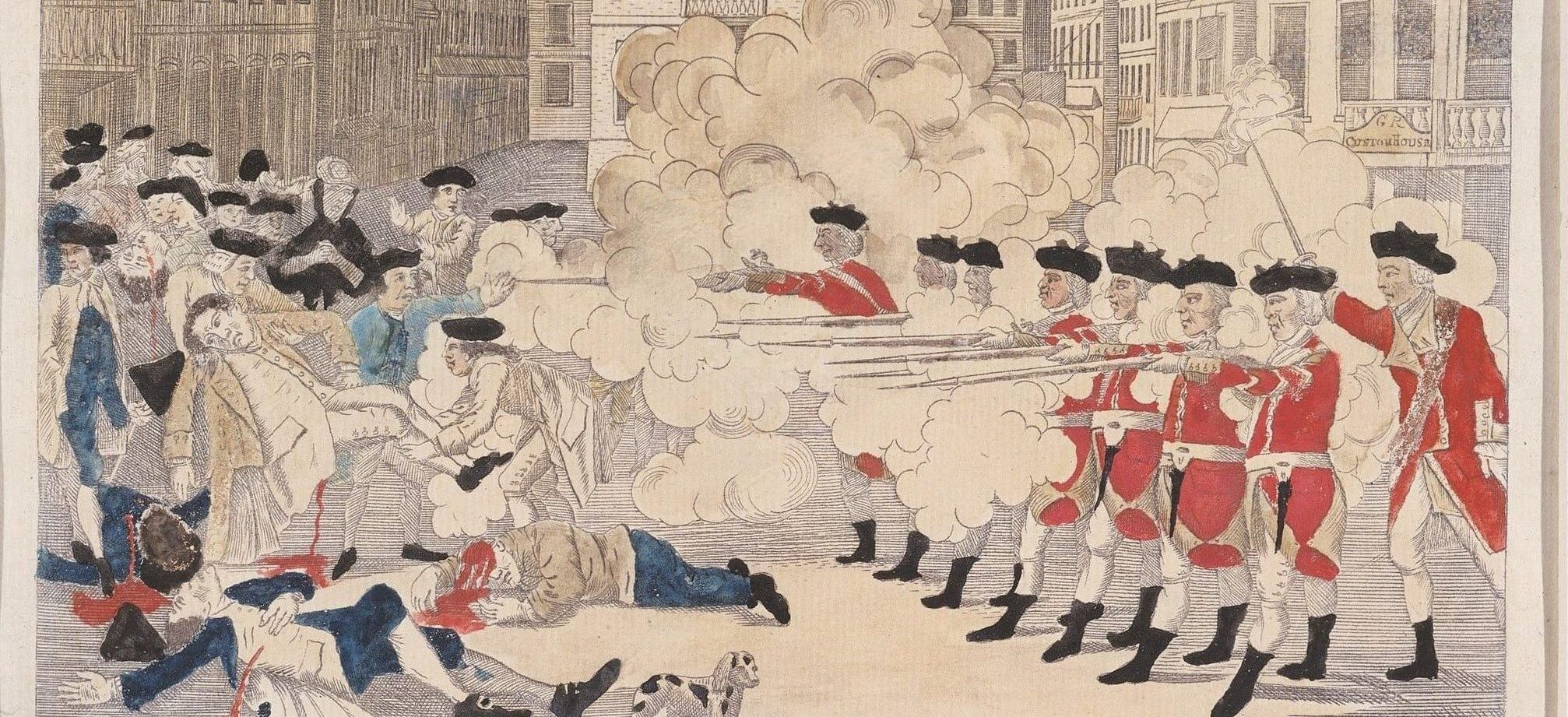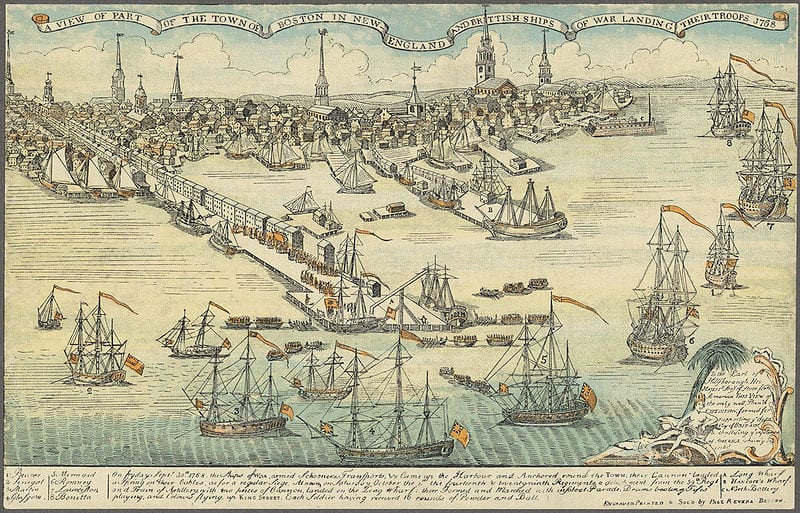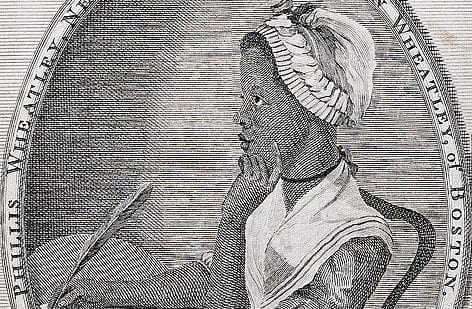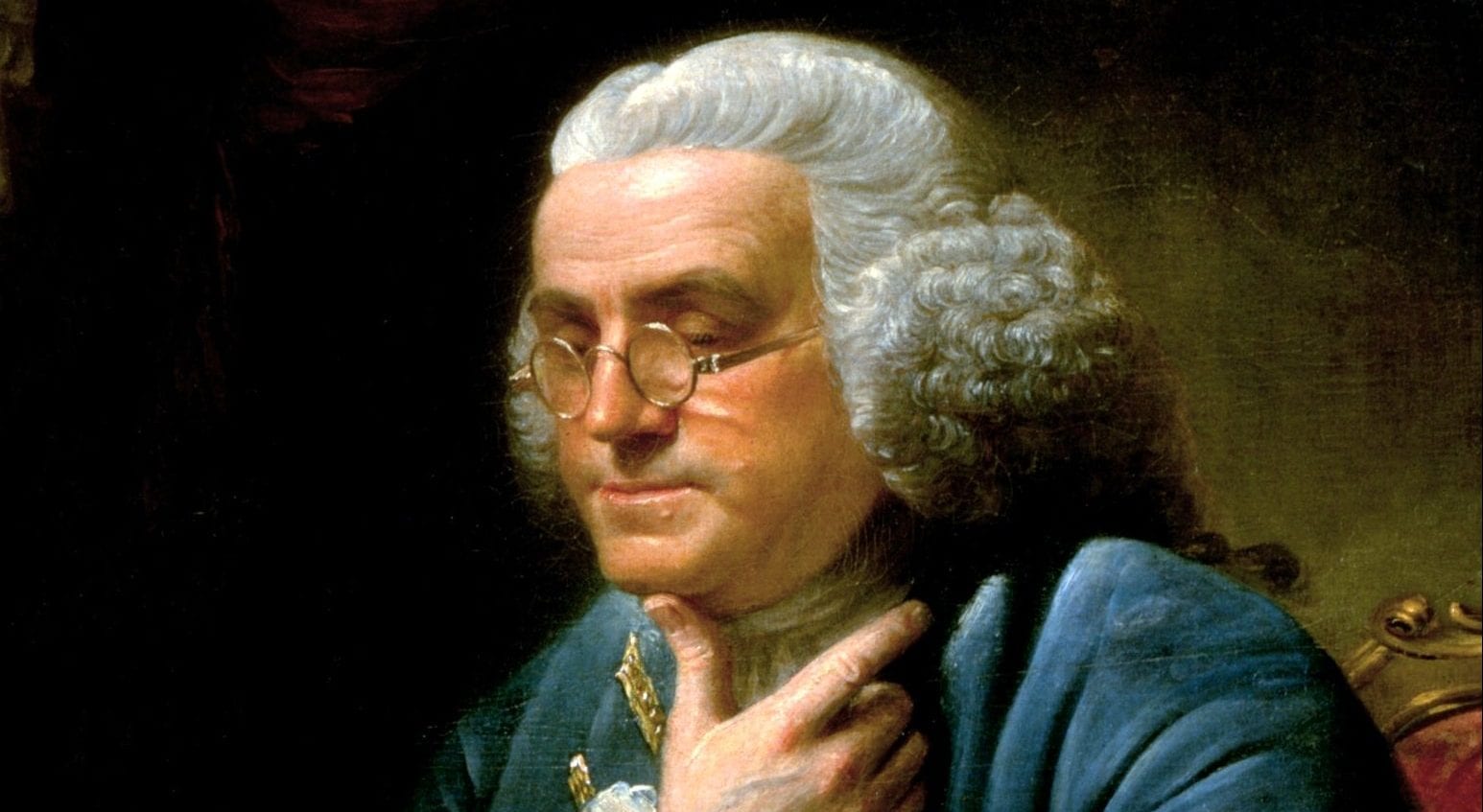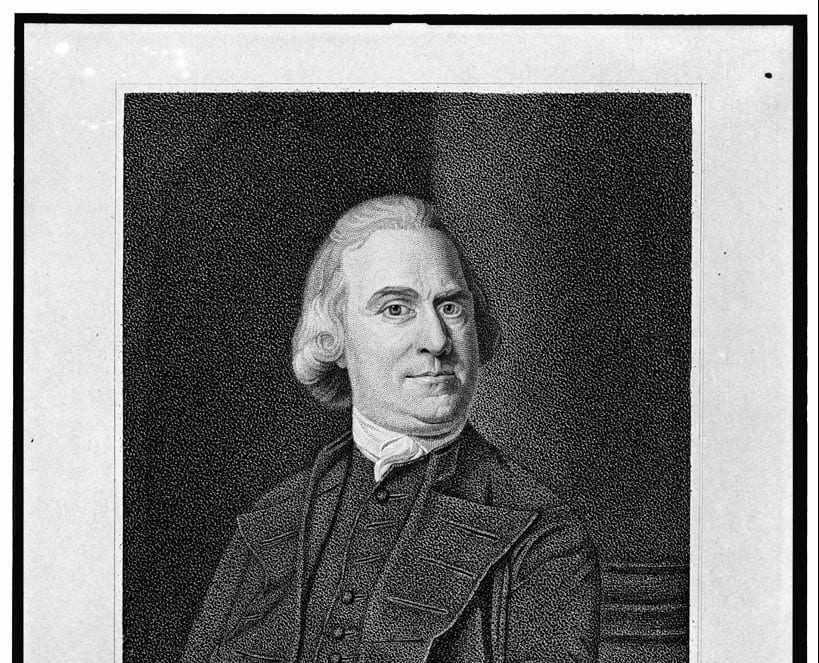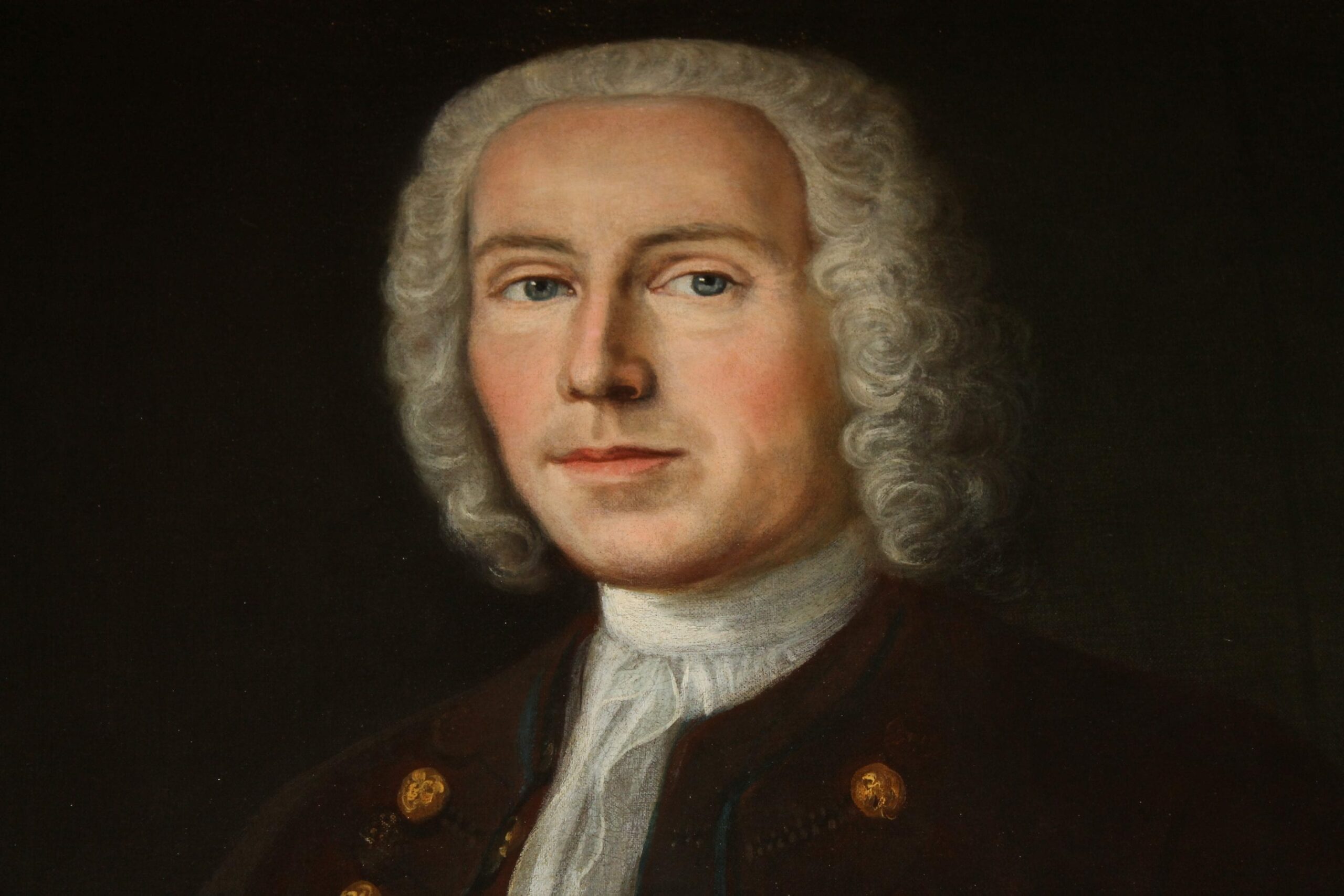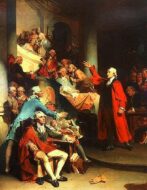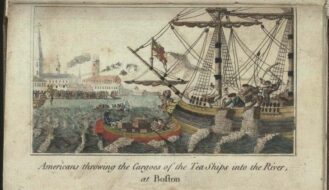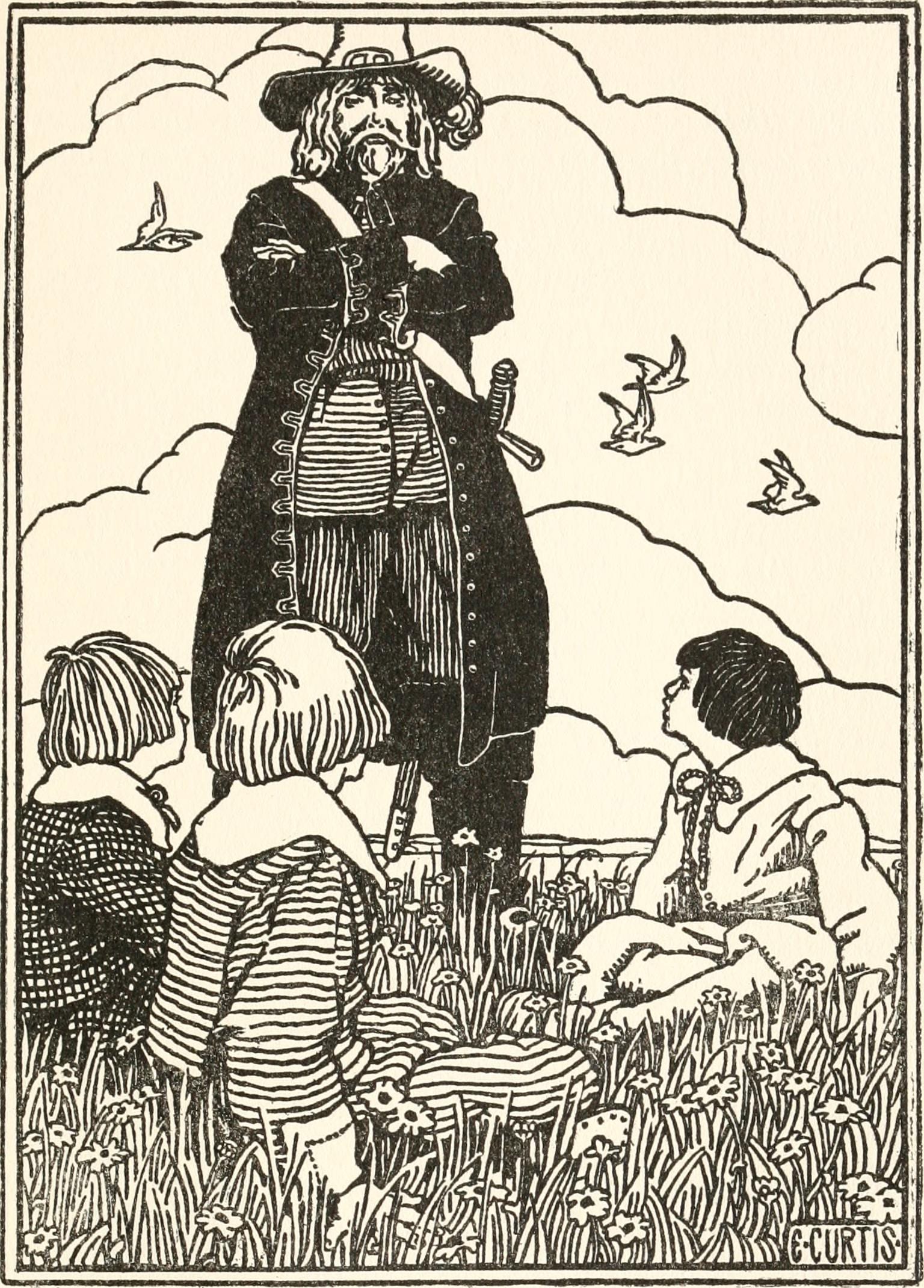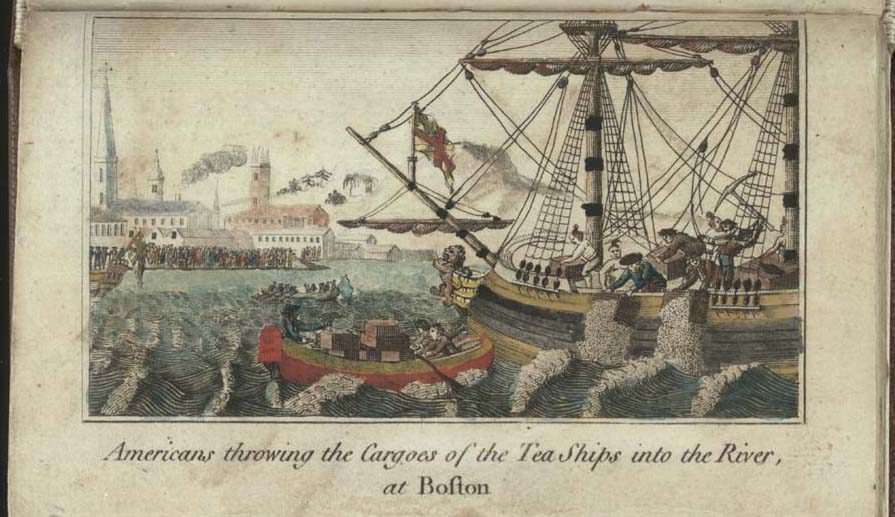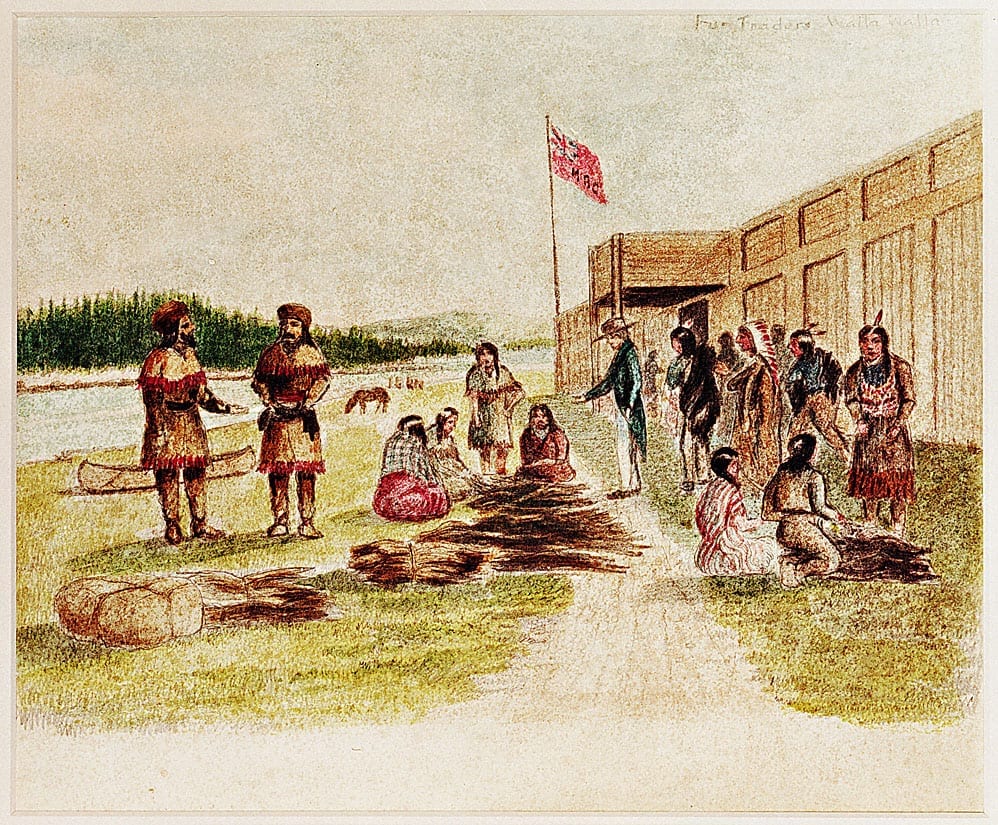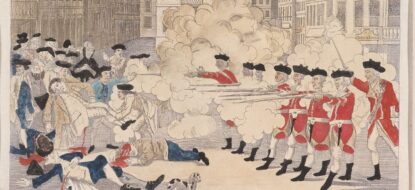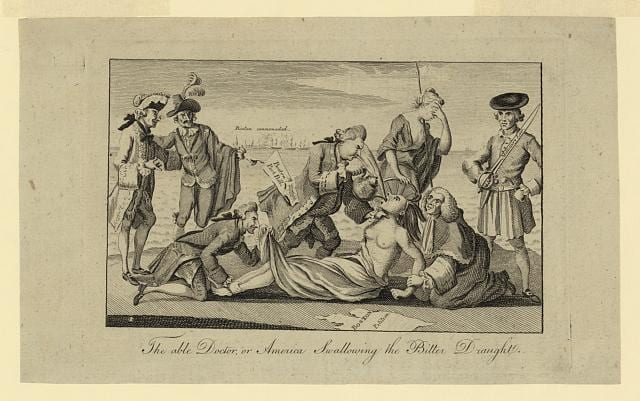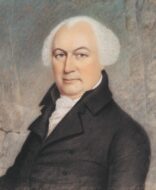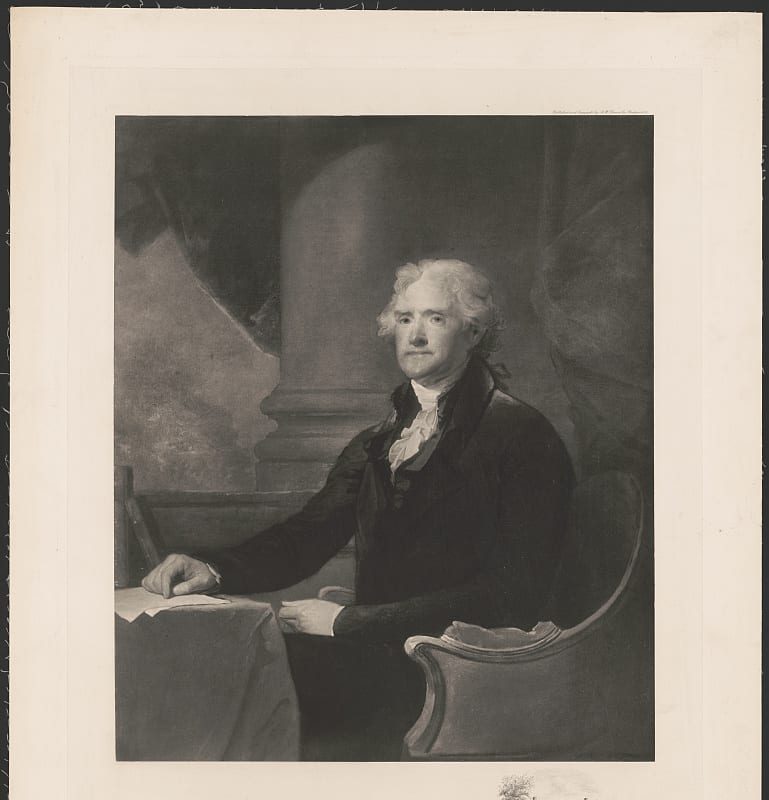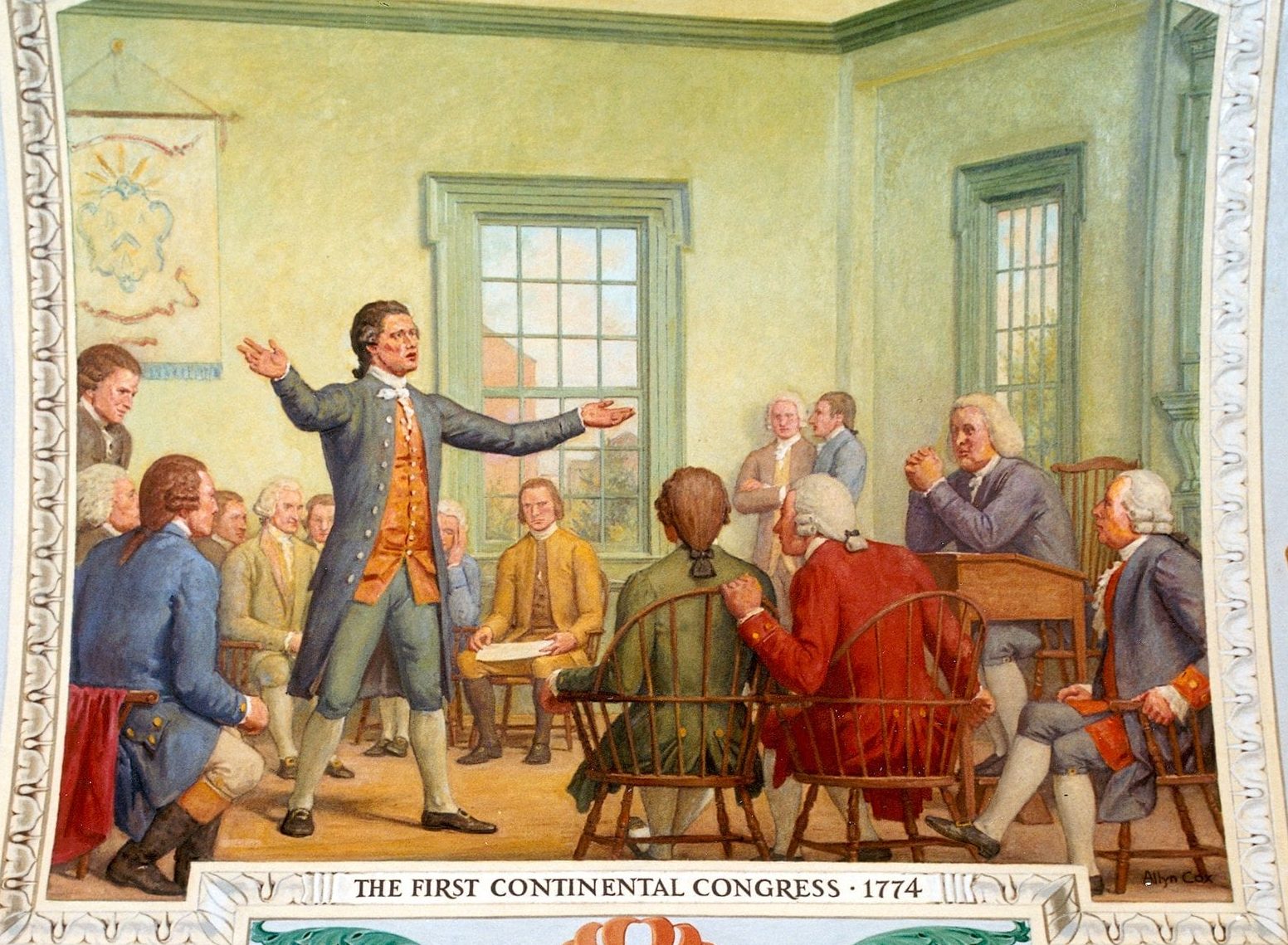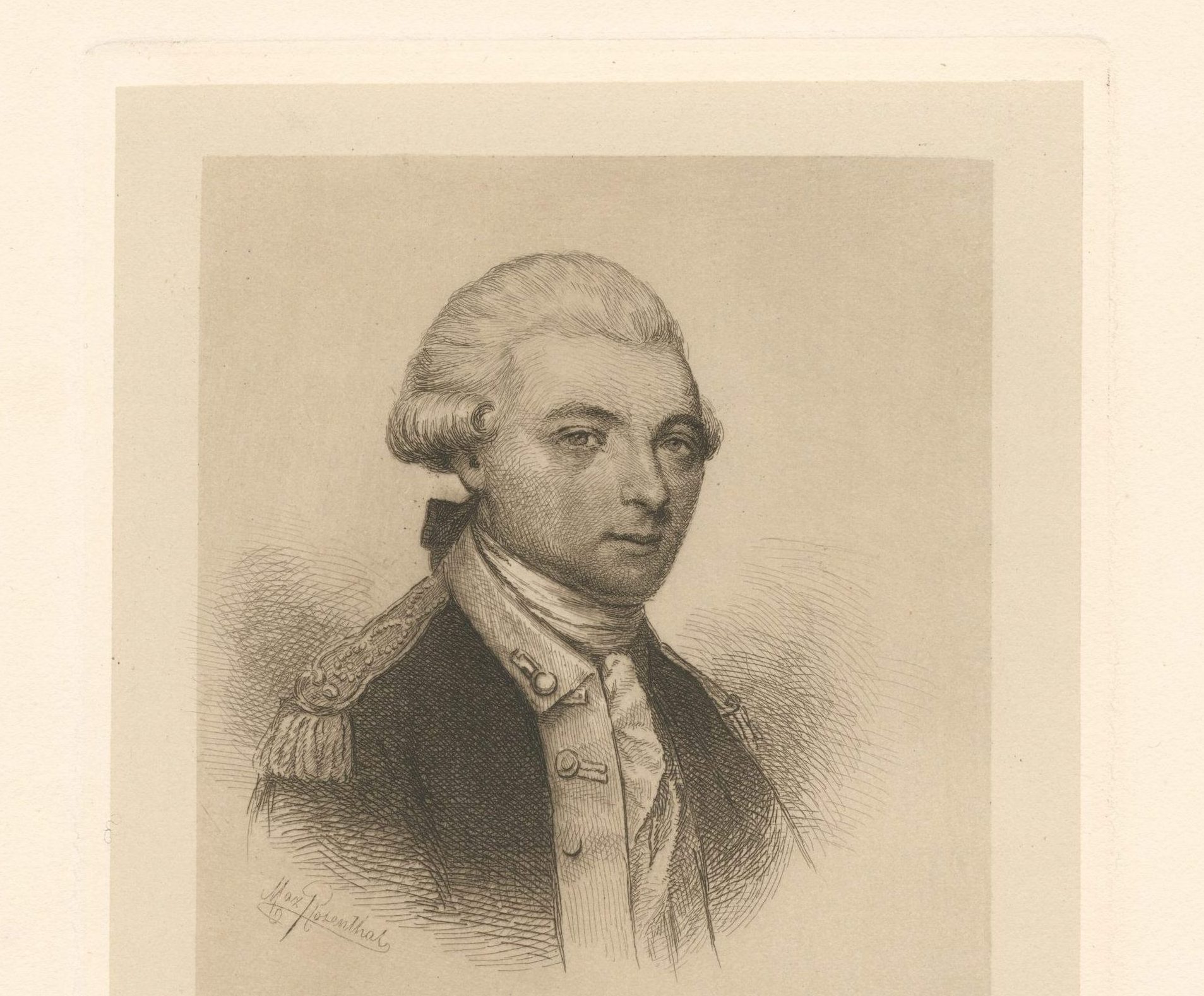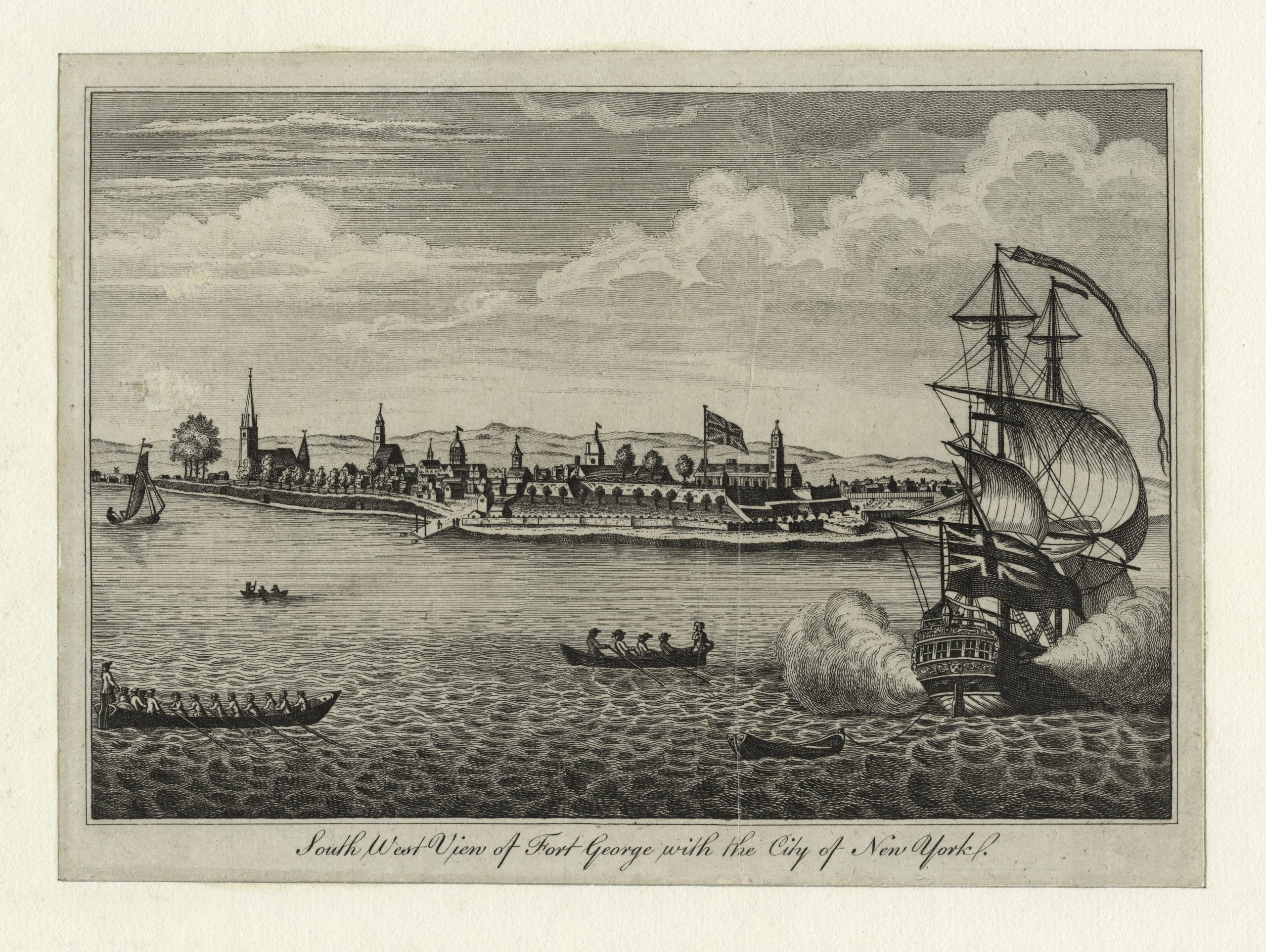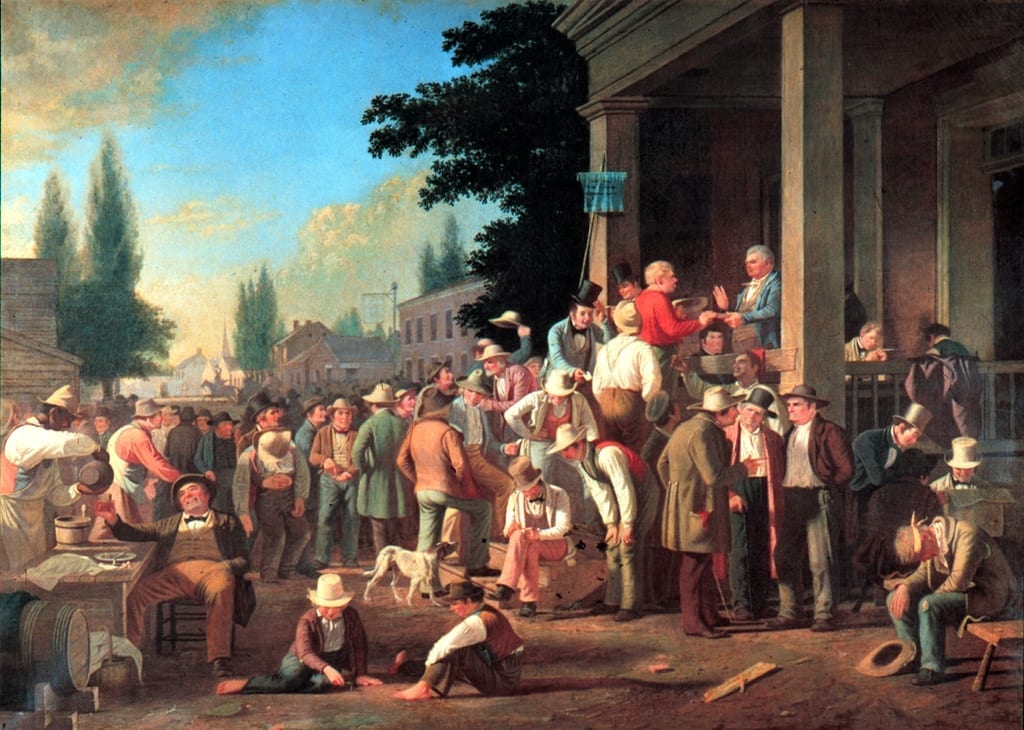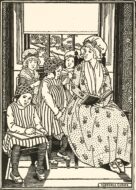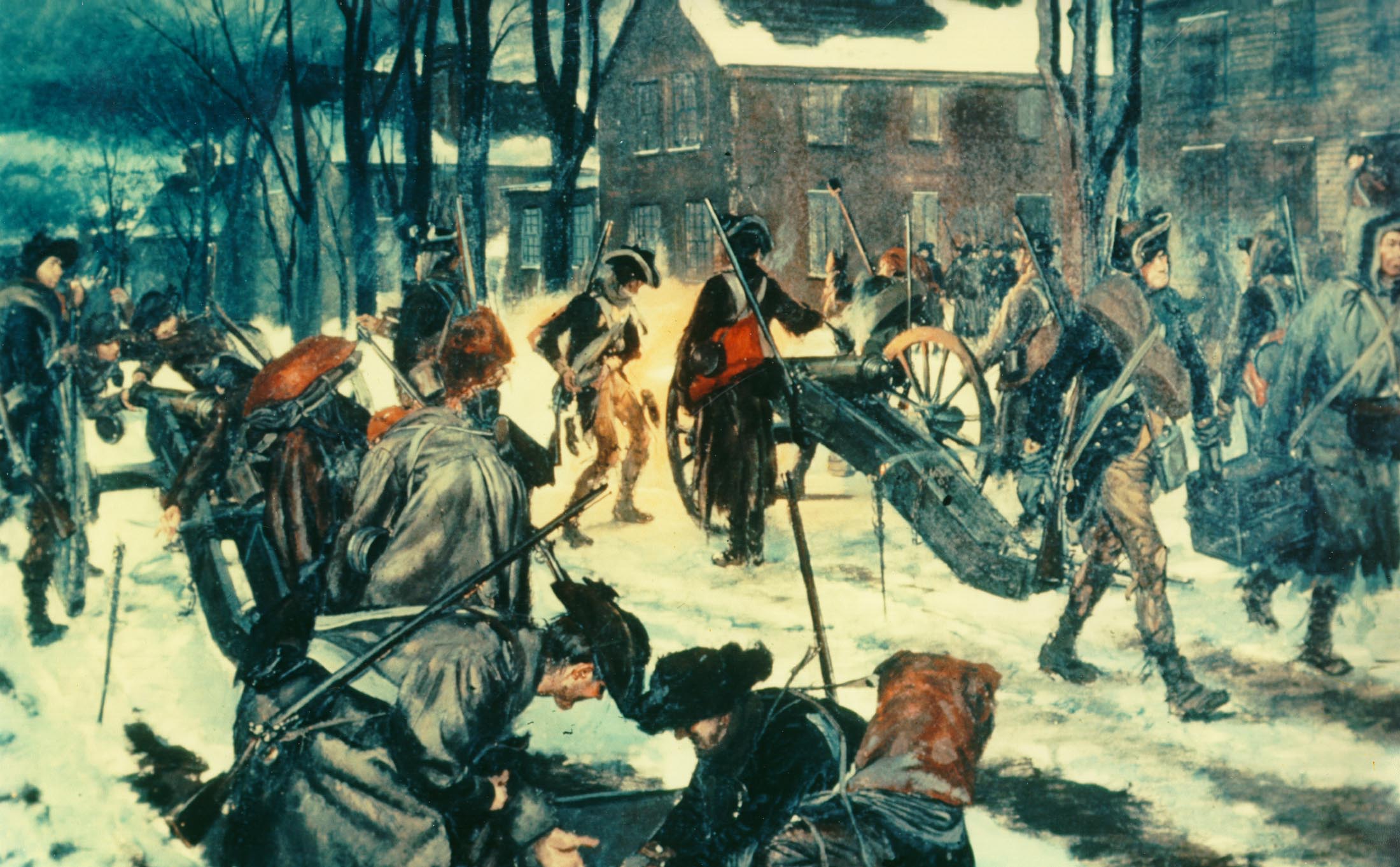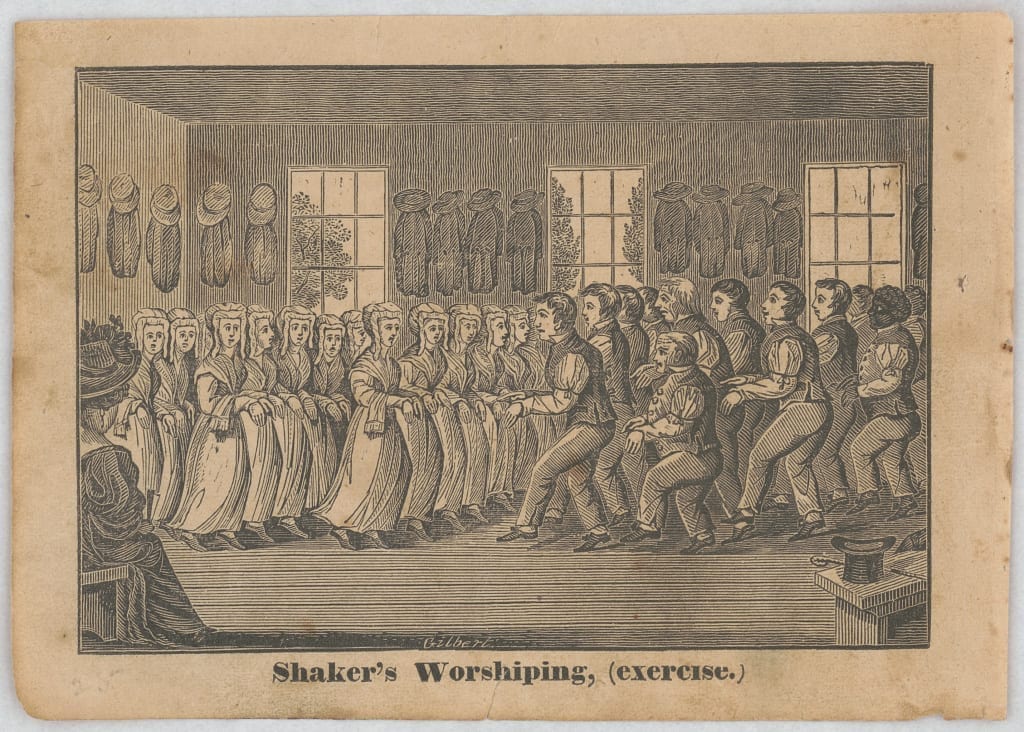
No study questions
No related resources
THAT from the year 1683, to this Day, there have been three Legislative Branches in this Colony; consisting of the Governor and Council appointed by the Crown, and the Representatives chosen by the people, who, besides the Power of making Laws for the Colony, have enjoyed the Right of Taxing the Subject for the Support of the Government.
Under this Political Frame, the Colony was settled by Protestant Emigrants from several Parts of Europe, and more especially from Great-Britain and Ireland: And as it was originally modeled with the Intervention of the Crown, and not excepted to by the Realm of England before, nor by Great-Britain, since the Union, the Planters, and Settlers conceived, which, so far at least as the Rights and Privileges of the People were concerned, would remain permanent, and be transmitted tot their latest Posterity.
It is therefore with equal Concern and Surprise, that they have received Intimations of certain Designs lately formed, if possible, to induce the Parliament of Great-Britain, to impose Taxes upon the Subjects here, by Laws to be passed there; and as we who have the Honour to represent them, conceive that this Innovation, will greatly affect the Interest of the Crown and the Nation, and reduce the Colony to absolute Ruin; it became our indispensible Duty, to trouble you with a seasonable Representation of the Claim of our Constituents, to an Exemption from the Burthen of all Taxes not granted by themselves, and their Foresight of the tragical Consequences of an Adoption of the contrary Principle, to the Crown, the Mother Country, themselves and their Posterity.
Had the Freedom from all Taxes not granted by ourselves been enjoyed as a Privilege, we are confident the Wisdom and Justice of the British Parliament, would rather establish than destroy it, unless by our abuse of it, the Forfeiture was justly incurred; but his Majesty’s Colony of New-York, can not only defy the whole World to impeach their Fidelity, but appeal to all the Records of their past Transactions, as well for the fullest Proof of their steady Affection to the Mother Country, as for their strenuous Efforts to support the Government, and advance the general Interest of the whole British Empire.
It has been their particular Misfortune, to be always most exposed to the Incursions of the Canadians, and the more barbarous Irruptions of the Savages of the Desert, as may appear by all the Maps of this Country; and in many Wars we have suffered an immense Loss both of Blood and Treasure, to repel the Foe, and maintain a valuable Dependency upon the British Crown.
On no Occasion can we be justly reproached for with-holding a necessary Supply, our Taxes have been equal to our Abilities, and confessed to be so by the Crown; for Proof of which we refer to the Speeches of our Governors in all Times of War; and though we remember with great Gratitude, that in those grand and united Struggles, which were lately directed for the Conquest of Canada, Part of our Expenses was reimbursed, yet we cannot suppress the Remark, that our Contribution surpassed our Strength, even in the Opinion of the Parliament, who under that Conviction, thought it but just to take off Part of the Burthen, to which we had loyally and voluntarily submitted; in a Word, if there is any Merit in facilitating on all Occasions, the publick Measures in the remote Extremes of the national Dominion, and in preserving untainted Loyalty and cheerful Obedience, it is ours; and (with Submission) unabused, nay more, well improved Privileges cannot, ought not, to be taken away from any People.
But an Exemption from the Burthen of ungranted, involuntary Taxes, must be the grand Principle of every free State.-Without such a Right vested in themselves, exclusive of all others, there can be no Liberty, no Happiness, no Security; it is inseparable from the very Idea of Property, for who can call that his own, which may be taken away at the Pleasure of another? And so evidently does this appear to be the natural Right of Mankind, that even conquered tributary States, though subject to the Payment of a fixed periodical Tribute, never were reduced to so abject and forlorn a Condition, as to yield to all the Burthens which their Conquerors might at any future Time think fit to impose. The Tribute paid, the Debt was discharged; and the Remainder they could call their own.
And if conquered Vassals upon the Principle even of natural justice, may claim a Freedom from Assessments unbounded and unassented to, without which they would sustain the Loss of every Thing, and Life itself become intolerable, with how much Propriety and Boldness may we proceed to inform the Commons of Great-Britain, who, to their distinguished Honour, have in all Ages asserted the Liberties of Mankind, that the People of this Colony inspired by the Genius of their Mother Country, nobly disdain the thought of claiming that Exemption as a Privilege.-They found it on a Basis more honourable, solid and stable; they challenge it, and glory in it as their Right. That Right their Ancestors enjoyed in Great-Britain and Ireland; their Descendents returning to those Kingdoms, enjoy it again: And that it may be exercised by his Majesty’s Subjects at Home, and justly denied to those who submitted to Poverty, Barbarian Wars, Loss of Blood, Loss of Money, personal Fatigues, and ten Thousand unutterable Hardships, to enlarge the Trade, Wealth, and Dominion of the Nation; or, to speak with the most unexceptionable Modesty, that when as Subjects, all have equal Merit; a Fatal, nay the most odius Discrimination should nevertheless be made between them, so Sophistry can recommend to the Sober, impartial Decision of common Sense.
Our Constituents exult in that glorious Model of Government, of which your Hon. House is so essential a Part; and earnestly pray the Almighty Governor of all, long to support the due Distribution of the Power of the Nation in the three great Legislative Branches. But the Advocates for divesting us of the Right to tax ourselves, would by the Success of their Machination; render the Devolution of all civil Power upon the Crown alone, a Government more favourable, and therefore more eligible to these American Dependencies. The supreme Ruler in a Monarchy, even in a despotic Monarchy, will naturally consider his Relation to be, what it is, equal to all his good Subjects: An equal Dispension of Favours will be the natural Consequence of those views; and the Increase of mutual Affection must be productive of an Increase of the Felicity of all. But no History can furnish an Instance of a Constitution to permit one Part of a Dominion to be taxed by another, and that too in Effect, but by a Branch of that other Part; who in all Bills for public Aids, suffer not the least Alteration.-And if such an absurd and unequal Constitution should be adopted, who, that considers the natural Reluctance of Mankind to burthens, and their Inclination to cast them upon the Shoulders of others, cannot foresee, that while the People on one Side of the Atlantic, enjoy an Exemption from the Load, those on the other, must submit to the most unsupportable Oppression and Tyranny.
Against these Evils, the Indulgence of the present Parliament, of which we have had such large Experience, cannot provide, if the grand Right to tax ourselves is invaded. Depressed by the Prospect of an endless Train of the most distressing Mischiefs, naturally attendant upon such an Innovation, his Majesty’s American Subjects, will think it no inconsiderable Augmentation of their Misery, that the Measure itself implies the most severe and unmerited Censure, and is urged, as far they are acquainted, by no good Reasons of State.
They are unconscious of any Conduct, that brings the least Imputation upon their Love and Loyalty, and whoever has accused them, has abused both the Colonies and their Mother Country; more faithful Subjects his Majesty has not, in any Part of his Dominions, nor Britain more submissive and affectionate Sons.
And if our Contributions to the Support of the Government upon this Continent, or for the Maintenance of an army, to awe and subdue the Savages should be thought necessary, why shall it be presumed, without a Trial, that we more than others, will refuse to hearken to a just Requisition from the Crown? To Requisitions for Aids salutary to our own Interests? Or why should a more incorrigible and unreasonable Spirit be imputed to us, than to the Parliament of Ireland, or any other of his Majesty’s Subjects?
Left to the Enjoyment of our antient Rights, the Government will be truly informed when a Tax is necessary, and of the Abilities of the People; and there will be an equitable Partition of the Burthen. And as the publick Charges will necessary increase with the Increase of the Country, and the Augmention or Reduction of the Force kept up, be regulated by the Power and Temper of our barbarian Enemy, the Necessity for continuing the present Model must appear to be most strongly inforced.-At the remote Distance of the British Commons from the sequestered Shades of the interior Parts of this Desert, false Intelligence of the State of the Indians may be detect all false Alarms, and check all fraudulent Accounts, but urge them by the never failing Motive of Self-Preservation, to oppose any hostile Attempts upon their Borders.
Nor will the Candor of the Commons of Great Britain, contrueour Earnestness to maintain this Plea, to arise from a Desire of Independency upon the supreme Power of the Parliament. Of so extravagant a Disregard to our own Interests we cannot be guilty.-From what other Quarter can we hope for Protection? We reject the Thought with the utmost Abhorrence; and a perfect Knowledge of this Country will afford the fullest Proof, that nothing in our Temper can give the least Ground for such a Jealousy.
The peaceable and invariable Submission of the Colonies, for a Century past, forbids the Imputation, or proves it a Calumny.- What can be more apparent, than that the State which exercises a Sovereignty in Commerce can draw all the Wealth of its Colonies into its own Stock? And has not the whole Trade of North-America, that growing Magazine of Wealth, been from the Beginning, directed, restrained, and prohibited at the sole Pleasure of the Parliament? And whatever some may pretend, his Majesty’s American Subjects are far from a Desire to invade the just Rights of Great-Britain, in all commercial Regulations. They humbly conceive, that a very manifest Distinction presents itself, which while it leaves to the Mother Country an incontestable Power, to give Laws for the Advancement of her own Commerce will, at the same Time, do no Violence to the Rights of the Plantations.
The Authority of the Parliament of Great-Britain, to model the Trade of the whole Empire, so as to subserve the Interest of her own, we are ready to recognize in the most extensive and positive Terms. Such a Preference is naturally founded upon her Superiority, and indissolubly connected with the Principle of Self-Preservation.-And therefore, to assign one Instance, instead of many, the Colonies cannot, would not ask for a Licence to import woolen Manufactures from France; or to go into the most lucrative Branches of Commerce, in the least Degree incompatible with Trade and Interest of Great-Britain.
But a Freedom to drive all Kinds of Traffick in a Subordination to, and not inconsistent with, the British Trade; and an Exemption from all Duties in such a Course of Commerce, is humbly claimed by the Colonies, as the most essential of all the Rights to which they are intitled, as Colonists from, and connected, in the common Bond of Liberty, with the uninslaved Sons of Great-Britain.
For, with Submission, since all Impositions, whether they be internal Taxes, or Duties paid, for what we consume, equally diminish the Estates upon which they are charged; what avails it to any People, by which of them they are impoverished? Every Thing will be given up to preserve Life; and though there is a Diversity in the Means, yet, the whole Wealth of a Country may be effectually drawn off, by the Exaction of Duties, as by any other Tax upon their Estates.
And therefore, the General Assembly of New-York, in Fidelity to their Constituents, cannot but express the most earnest Supplication, that the Parliament will charge our Commerce with no other Duties, than a necessary Regard to the Particular Trade of Great-Britain, evidently demands; but leave it to the legislative Power of the Colony, to impose all other Burthens upon it’s own People, which the publick Exigences may require.
Latterly, the Laws of Trade seem to have been framed without an Attention to this fundamental Claim.
Permit us, also, in Defence of our Attachment to the Mother Country, to add, what your Merchants (to whom we boldly make the Appeal) know to be an undoubted Truth; that this Continent contains some of the most useful of her Subjects.-Such is the Nature of our Produce, that all we acquire is less than sufficient to purchase what we want of your Manufactures; and, be the Policy of your Commerce what it will, all our Riches must flow into Great-Britain.-Immense have been our Contributions to the National Stock.-Our Staple, Industry, Trade and Wealth, all conduce to the particular Advantage of our fellow Subjects there.-The natural State of this Country, necessarily forms the Balance of Trade in her Favour.-Her growing Opulence must elevate her above all Fear and Jealousy or these Dependences. How much stronger then the Reasons for leaving us free from ungranted Impositions? Whoever will give full Scope to his Meditations on this Topic, will see it the Interest of Great-Britain, to adopt the Maxim, that her own Happiness is the most imtimately connected with the Freedom, Ease and Prosperity of her Colonies: The more extensive our Traffick, the Greater her Gains; we carry all to her Hive, and consume our Returns; and we are content with any constitutional Regulation that inriches her, though it impoverishes ourselves. But a fuller Display of these Principles, being prepared by our Merchants, to be laid before the honourable House, at the last Sitting, we shall only beg Leave to add, that any Information, repugnant to this Account of the low State of our Traffick, must proceed from partial, or incompetent Witnesses; who may have formed their Estimate of Spanish West-Indies, were laid open to our Trade, and those immense Profits acquired there, for the Manufactures of Great-Britain and Ireland, flowed into the Colonies, and Luxury advanced upon us slower than our Gains.-But Trade being now confined to it’s old Channels, and indeed still more restricted, and the late acquired Cash, remitted home for necessary Cloathing, other very indifferent Appearances begin to take place, and the British Merchants are, or will soon be convinced to their Sorrow, that our Splendor was not supported by solid Riches.
The honourable House will permit us to observe next, that the Act of the last Session of Parliament, inhibiting all Intercourse between the Continent and the foreign Sugar Colonies, will prove equally detrimental to us and Great-Britain.-That Trade, gave a value to a vast, but now alas unsaleable Staple, which being there converted into Cash and Merchandize, made necessary Remittances for the British Manufactures we consumed:-The same Law contains a Clause unfriendly to the Linen Manufactory in Ireland, for the Restraint upon the Exportation of Lumber to that Kingdom, prevents even our dunnaging the Flax-Seed Casks sent there with Staves.-And when we consider the Wisdom of our Ancestors in contriving Trials by Juries, we cannot stifle our Regret, that the Laws of Trade in general, change the Current of Justice from the common Law, and subject Controversies of the utmost Importance to the Decisions of the Vice-Admiralty Courts, who proceed not according the old wholesome Laws of the Land, nor are always filled with Judges of approved Knowledge and Integrity.-To this Objection, the aforementioned Statute will at first View appear to be so evidently open, that we shall content ourselves with barely suggesting, that the amazing Confidence it reposes in the Judges, gives great Grief to his Majesty’s American Subjects; and pass on to a few Remarks on that other Law of the same Session, which renders our Paper Money no legal Tender.
The Use of this Sort of Currency in procuring a speedy Supply on Emergencies, all the Colonies have often experienced.-We have had Recourse to this Expedient in every War, since the Reign of King William the Third; and without it we could not have co-operated so vigorously in the Reduction of Canada, that grand stroke which secured to Great-Britain, the immense Dominion of the Continent of North-America. We had no other Alternative but that, or the taking up Money upon Loan, Lenders could not have been easily found, and if they were, the Interest upon all the Sums raised in that Way, would have exceeded our Ability now to discharge. Happy for us, therefore, that we fell upon the Project of giving a Credit to Paper, which was always supported by seasonable Taxes on our Estates; the Currency of the Bills being prolonged only till we were able to burn up the Quantity from Time to Time emitted.-Our Laws, or the Copies transmitted to the Plantation Office, will evidence that of the numerous Emissions we have made since the first, which was on the 8th of June, 1709, all were for the urgent Service of the Crown.-One Instance is so recent, and shows the Necessity of the Continuation of such a Power in the Colonies, in so striking a Point of Light, that it deserves more particular Notice. The Operations of the Year 1759, were nearly at a Stand for want of Money. The military Chest being exhausted, the General was alarmed, and seeing no other Method to ward of the impending Disaster, was obliged to ask the Colony for a loan of One Hundred and Fifty Thousand Pounds: We immediately gratified his Request.-Such was our Concern for the publick Weal! We wish his Majesty’s Service may suffer no Impediment, by this new Restraint in an Article which has been of so much Utility.-The Traffick of the Colony certainly will, for want of a competent Medium; and on that Account, and in behalf of those miserable Debtors, whose Estates, through the Scarcity of legal Value, to the Ruin of many Families, permit us to implore your tender Commiseration.
The General Assembly of this Colony have no desire to derogate from the Power of the Parliament of Great-Britain; but they cannot avoid deprecating the Loss of such Rights as they have hitherto enjoyed, Rights established in the first Dawn of our Constitution, founded upon the most substantial Reasons, confirmed by invariable Usage, conducive to the best Ends; never abused to bad Purposes, and with the Loss, of which Liberty, Property, and all the Benefits of Life, tumble into Insecurity and Ruin: Rights, the Deprivation of which, will dispirit the People, abate their Industry, discourage Trade, introduce Discord, Poverty and Slavery; or, by depopulating the Colonies, turn a vast, fertile, prosperous Region, into a dreary Widlerness; impoverish Great-Britain, and shake the Power and Independency of the most opulent and flourishing Empire in the World…
The Stamp Act
March 22, 1765
Conversation-based seminars for collegial PD, one-day and multi-day seminars, graduate credit seminars (MA degree), online and in-person.
